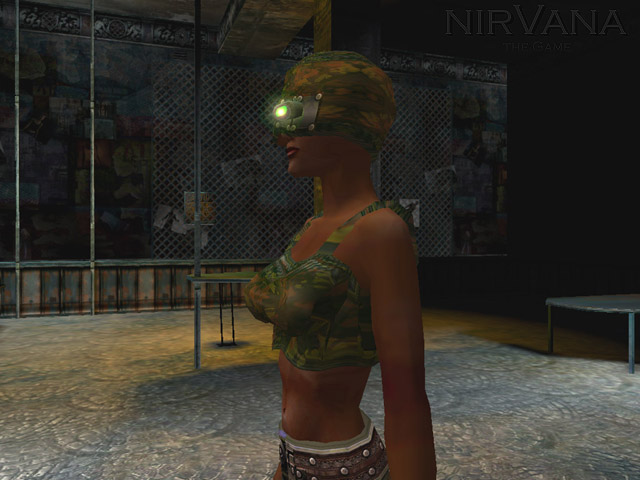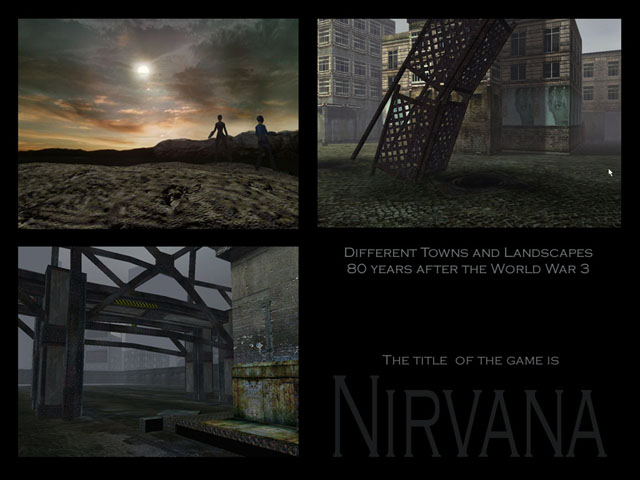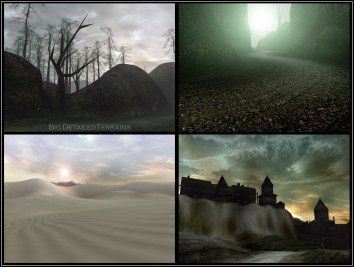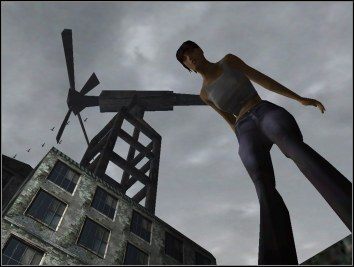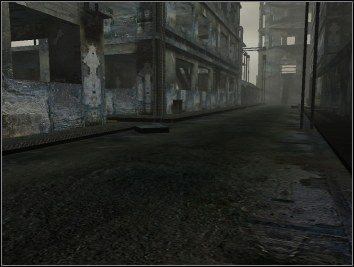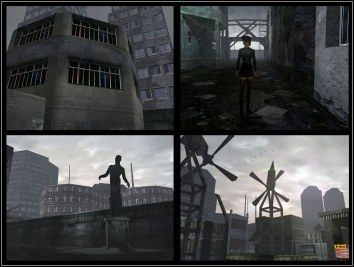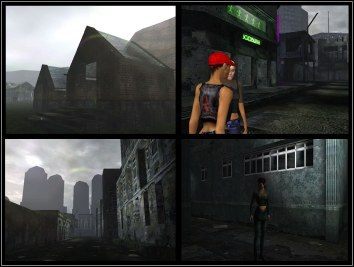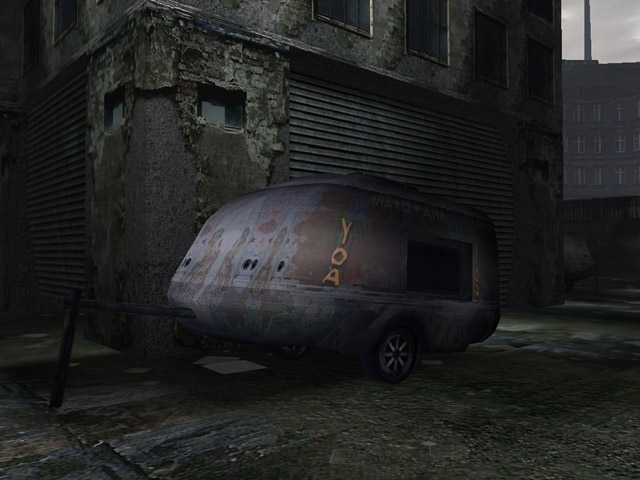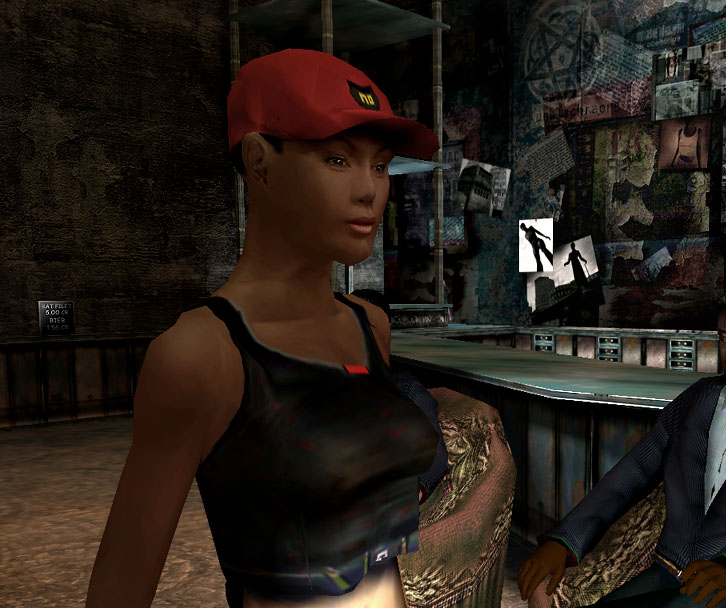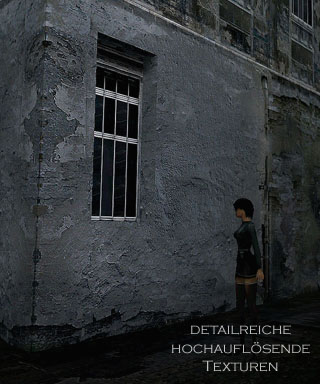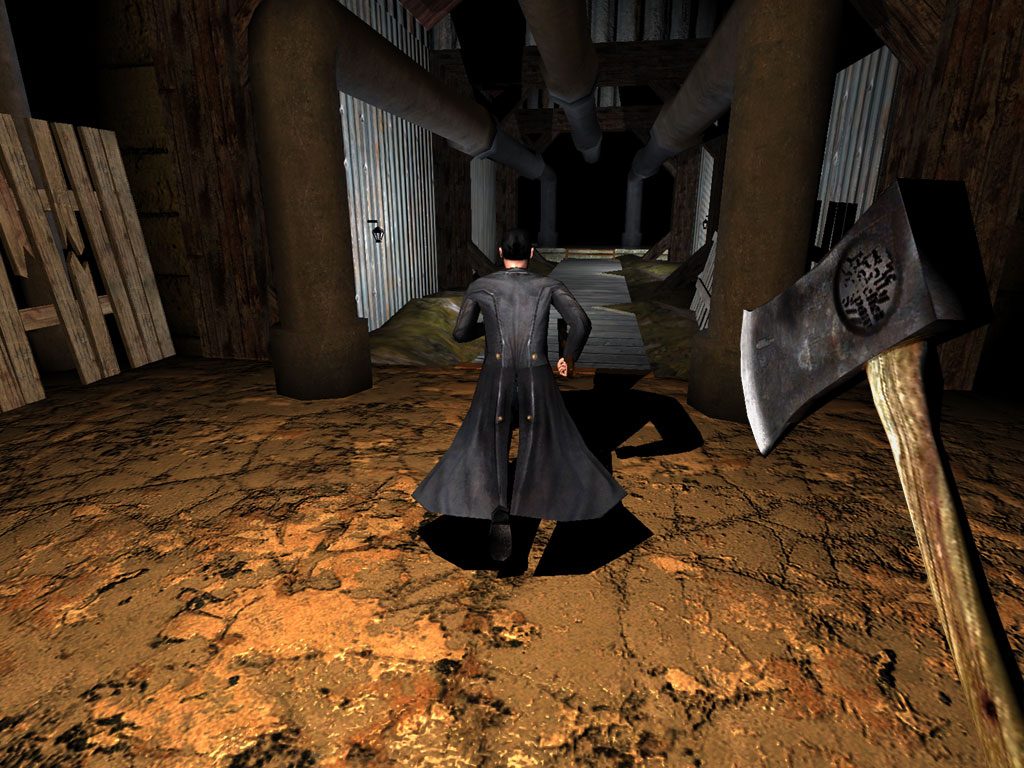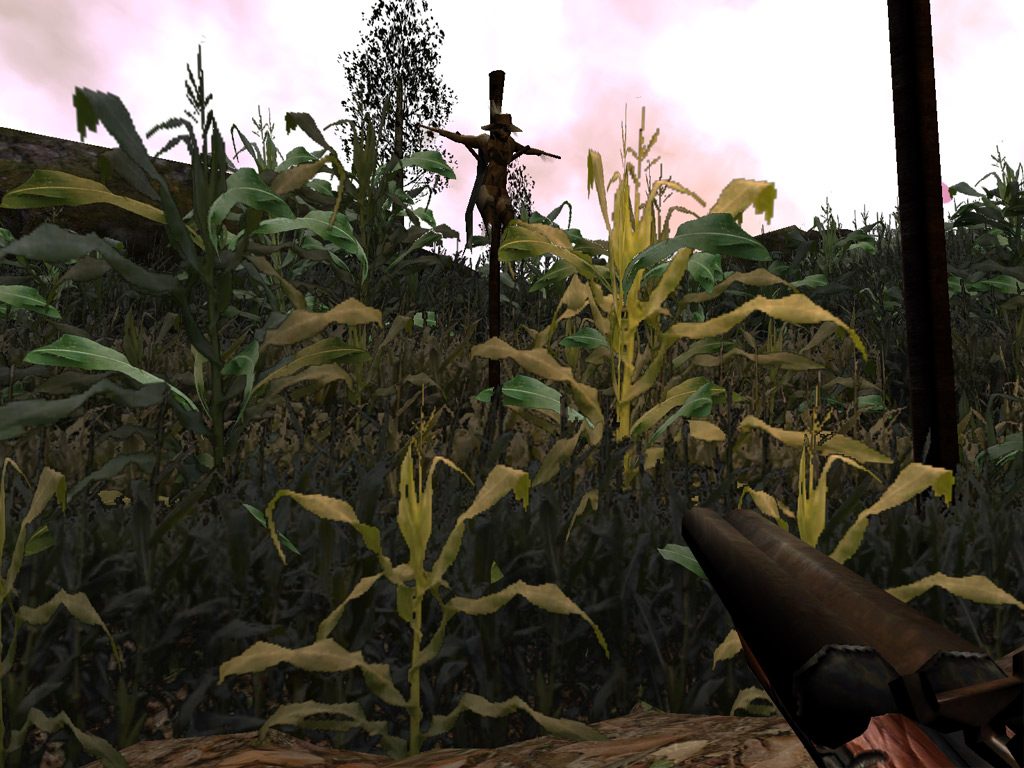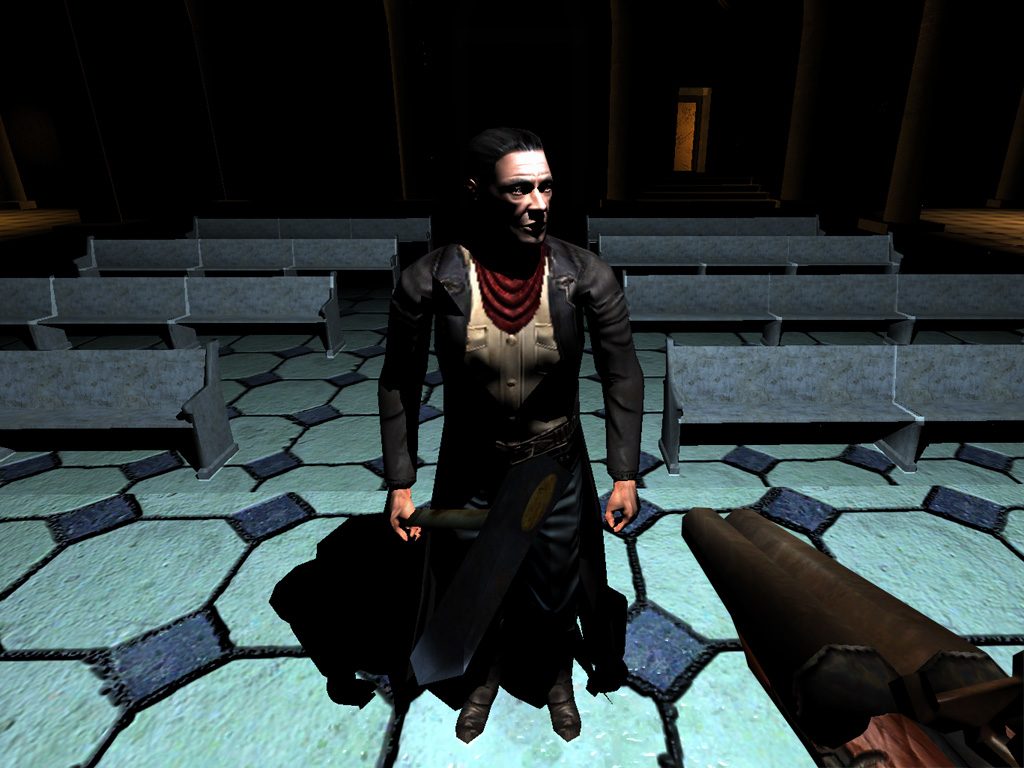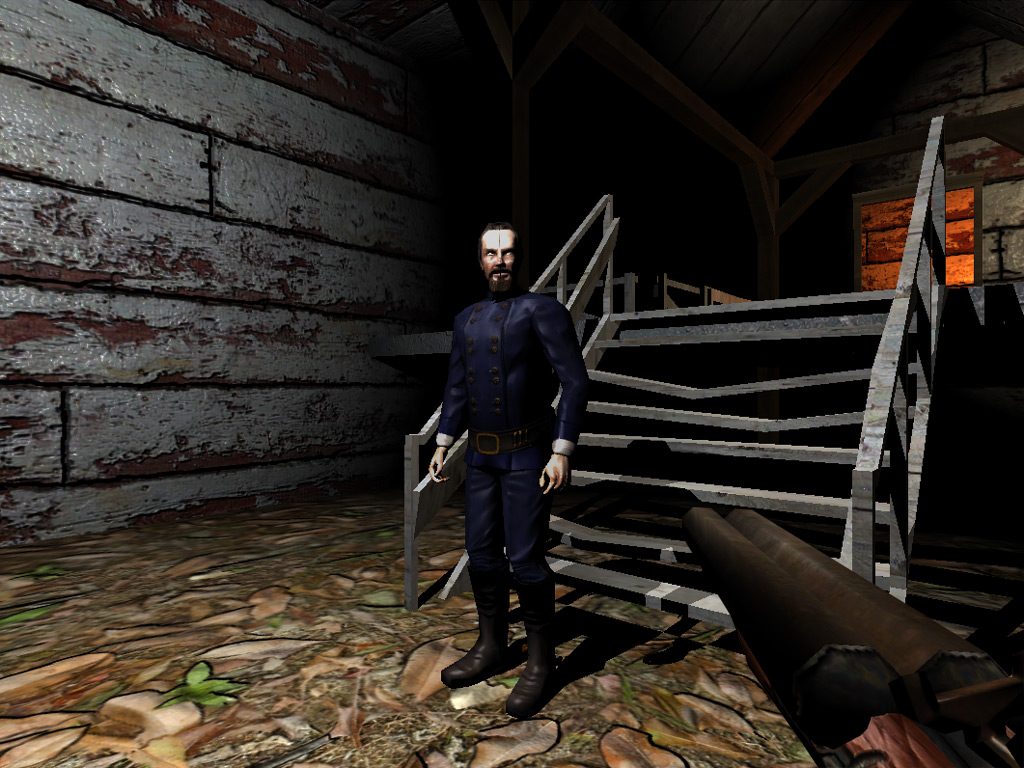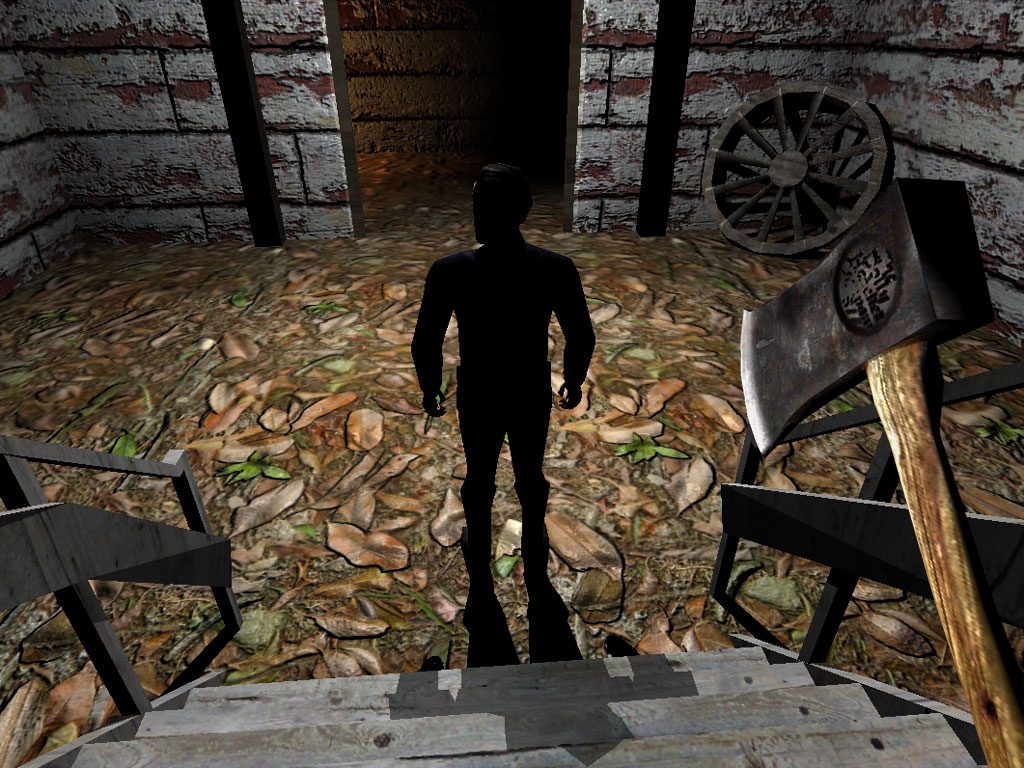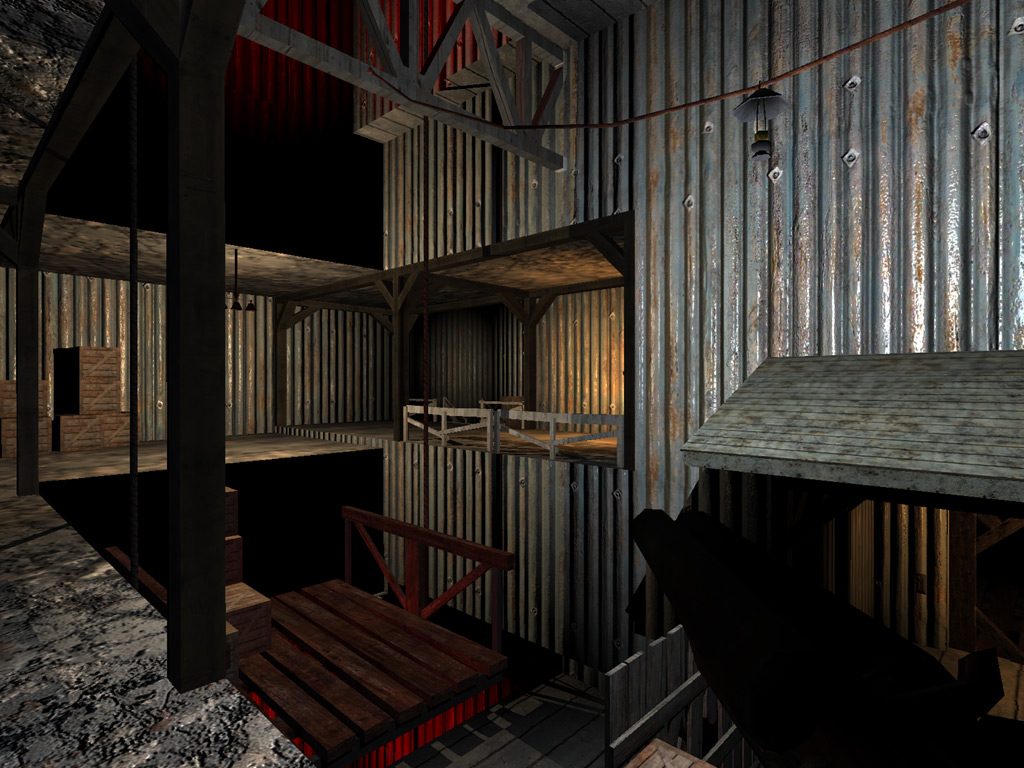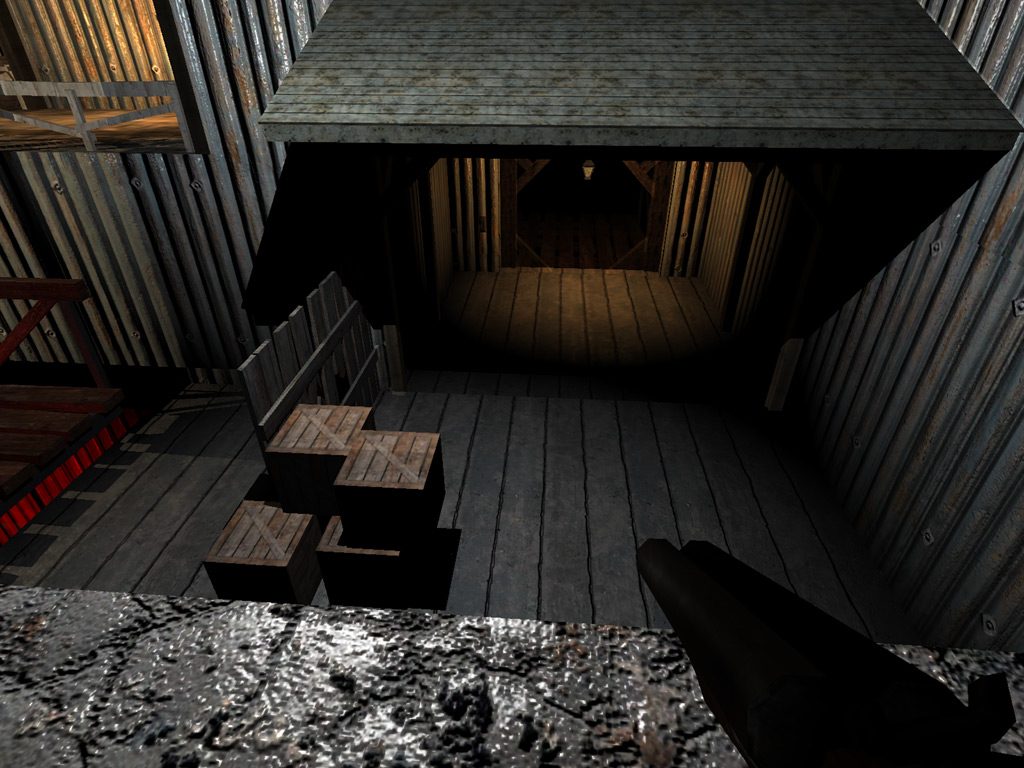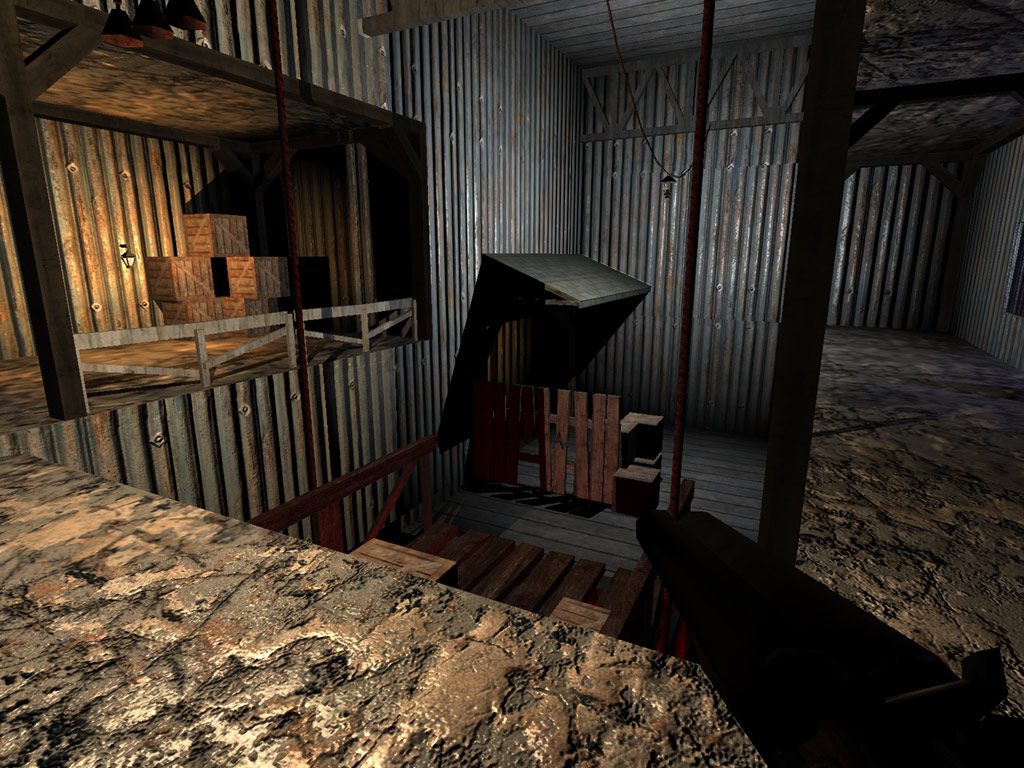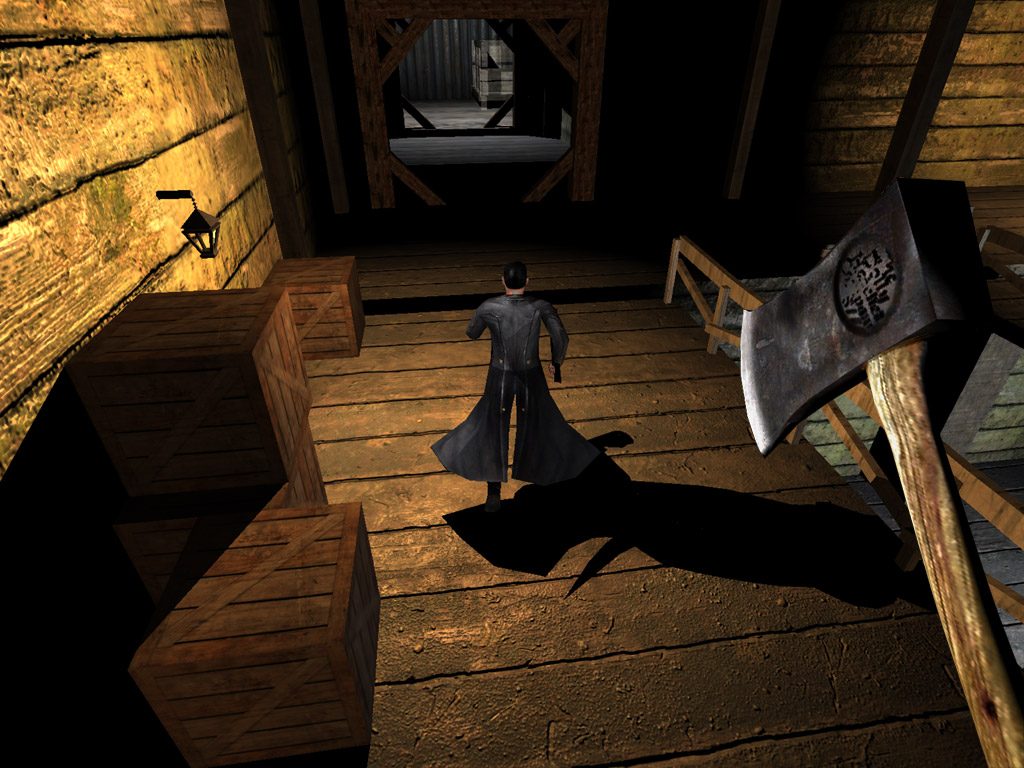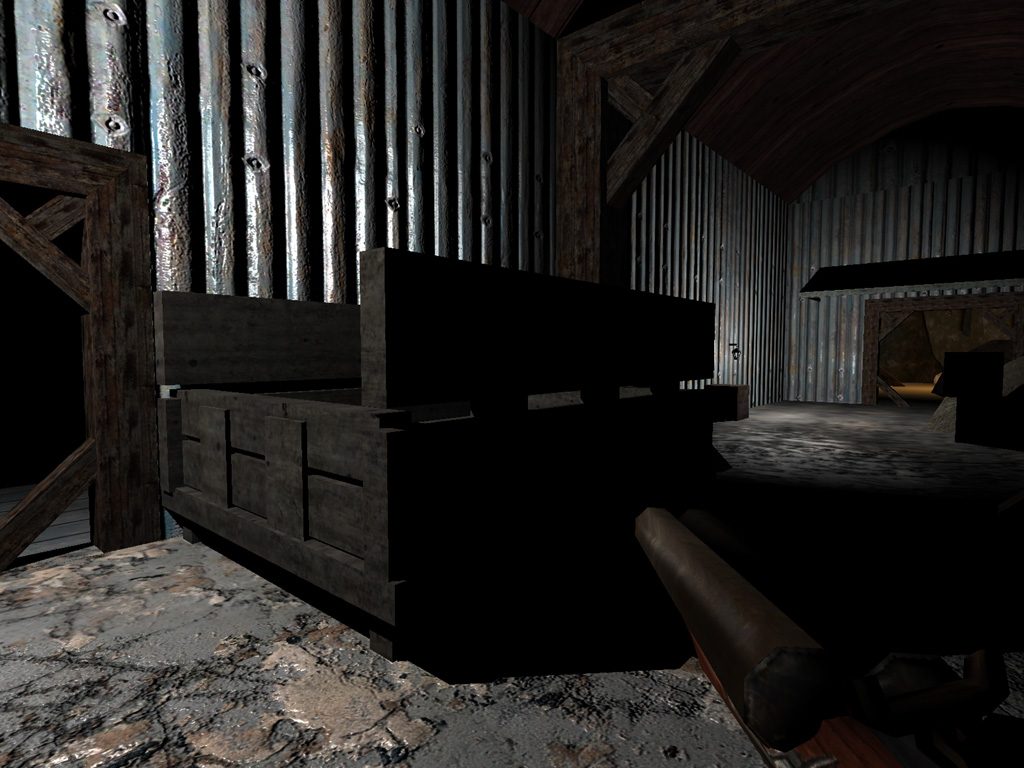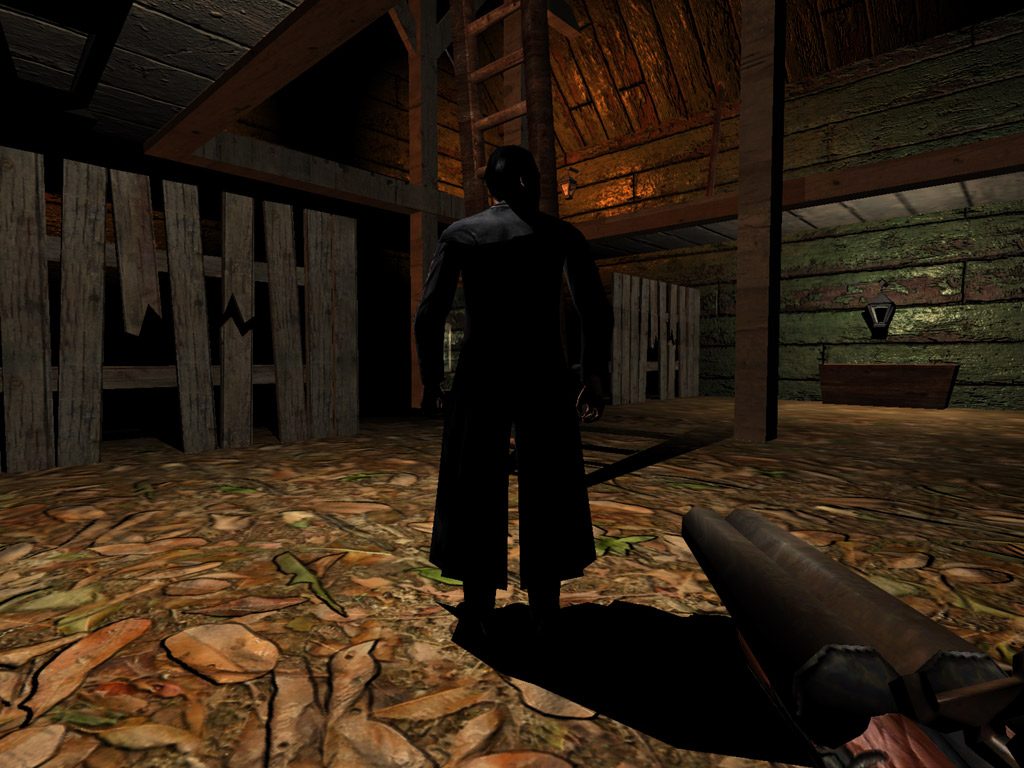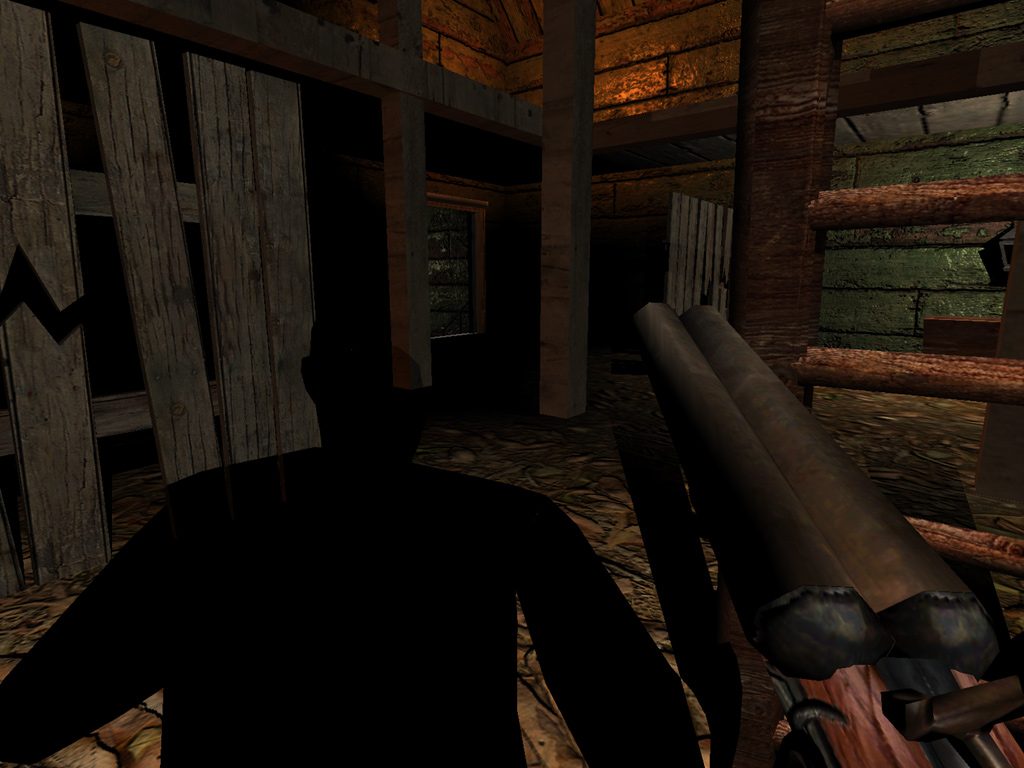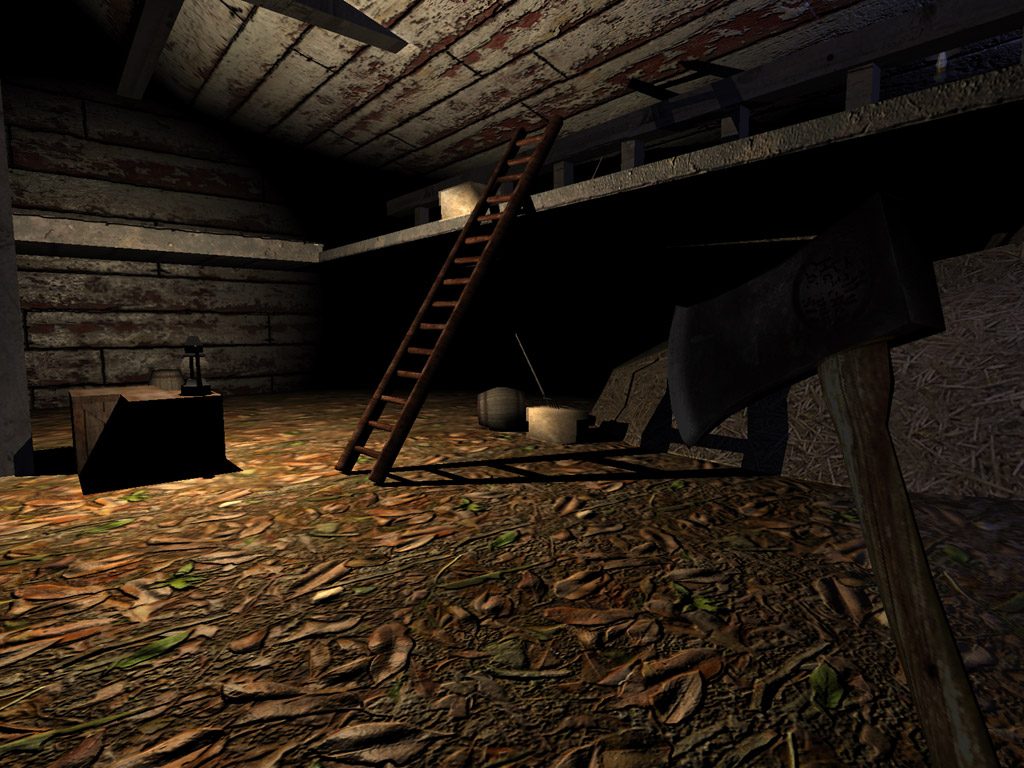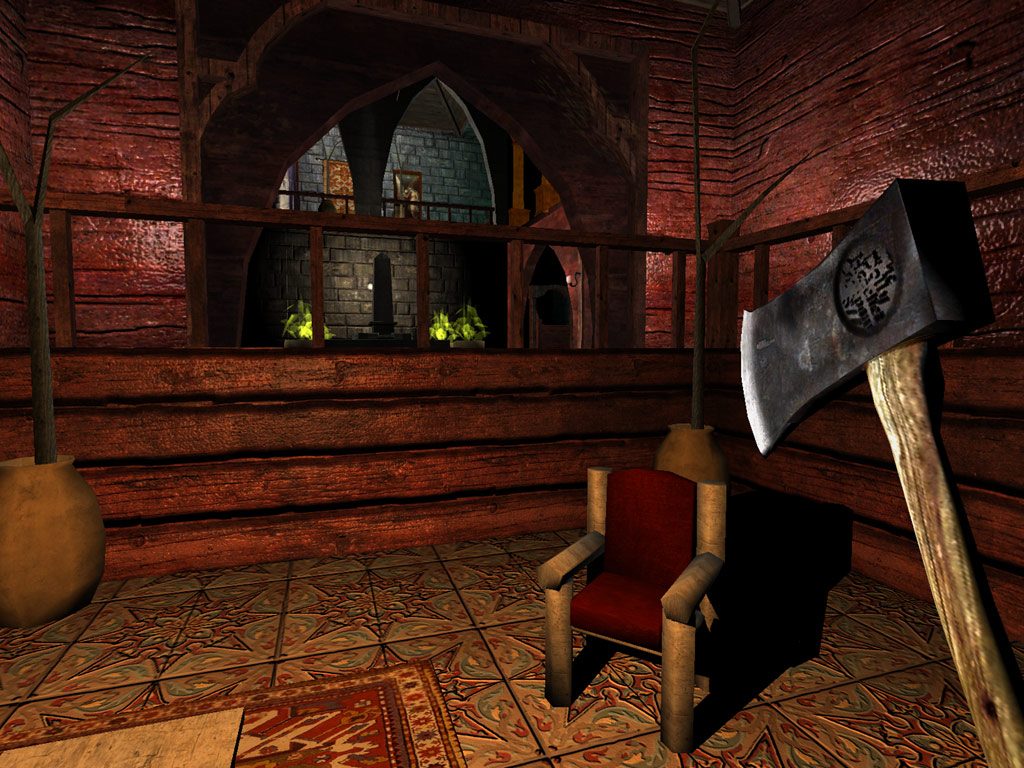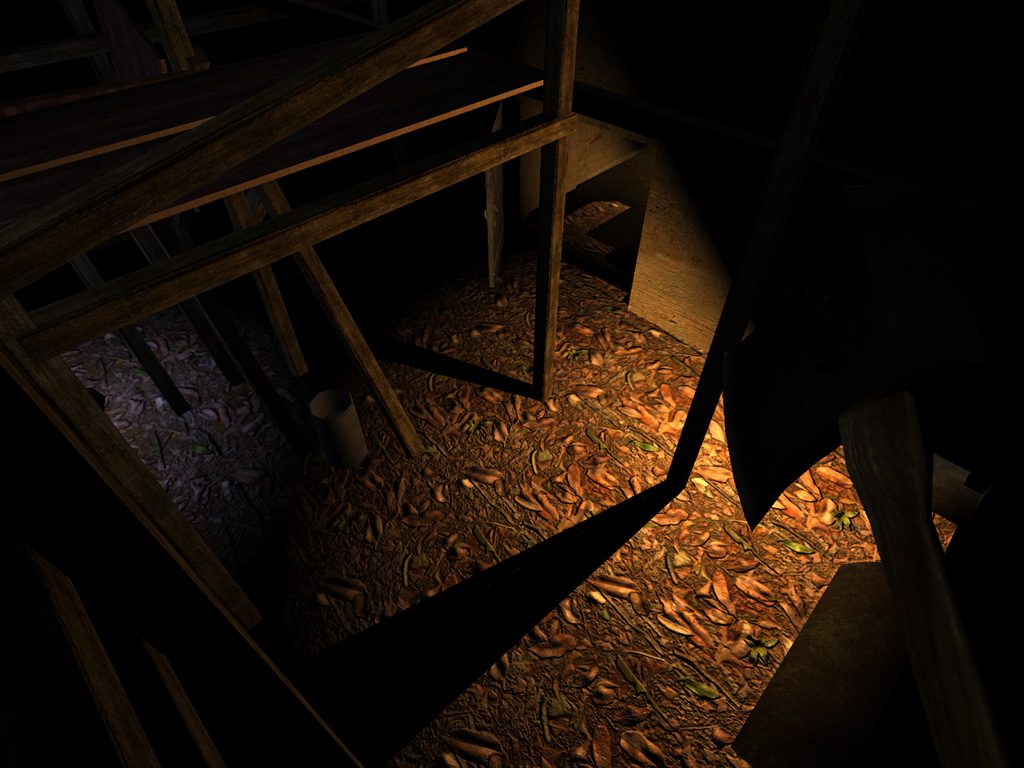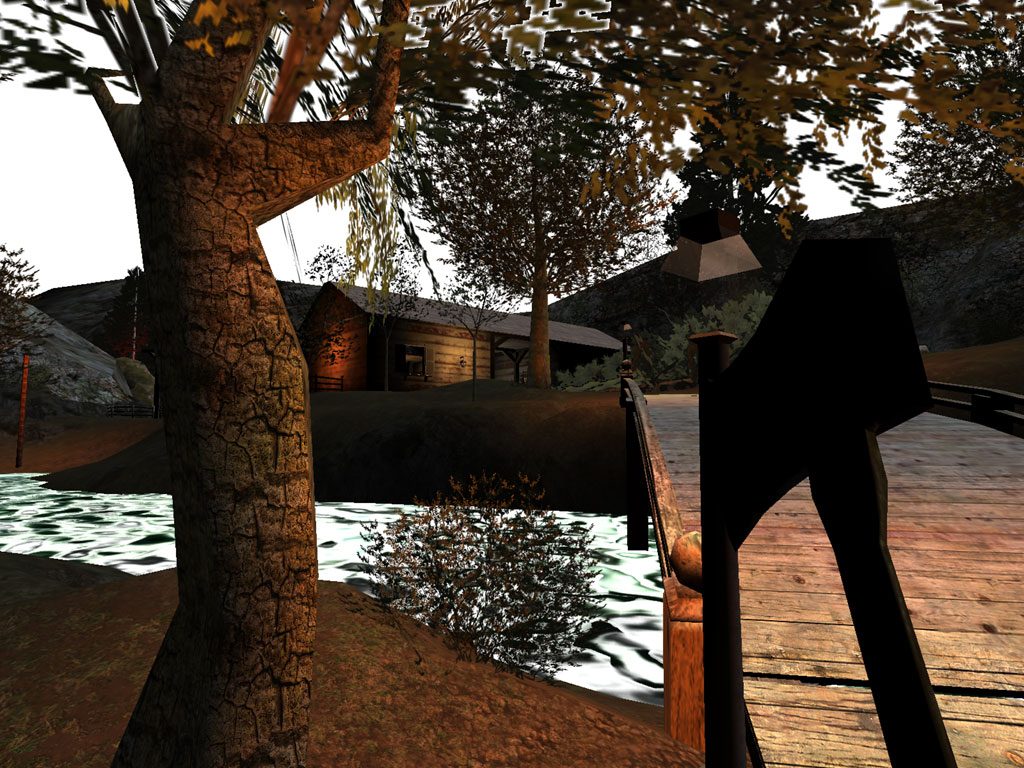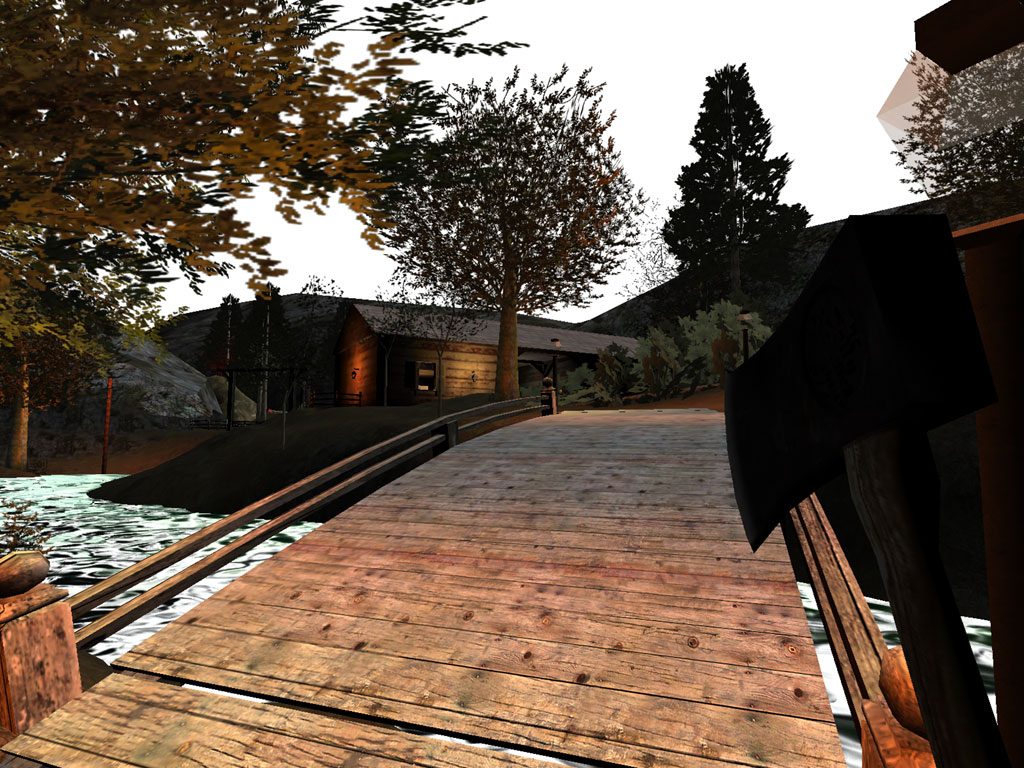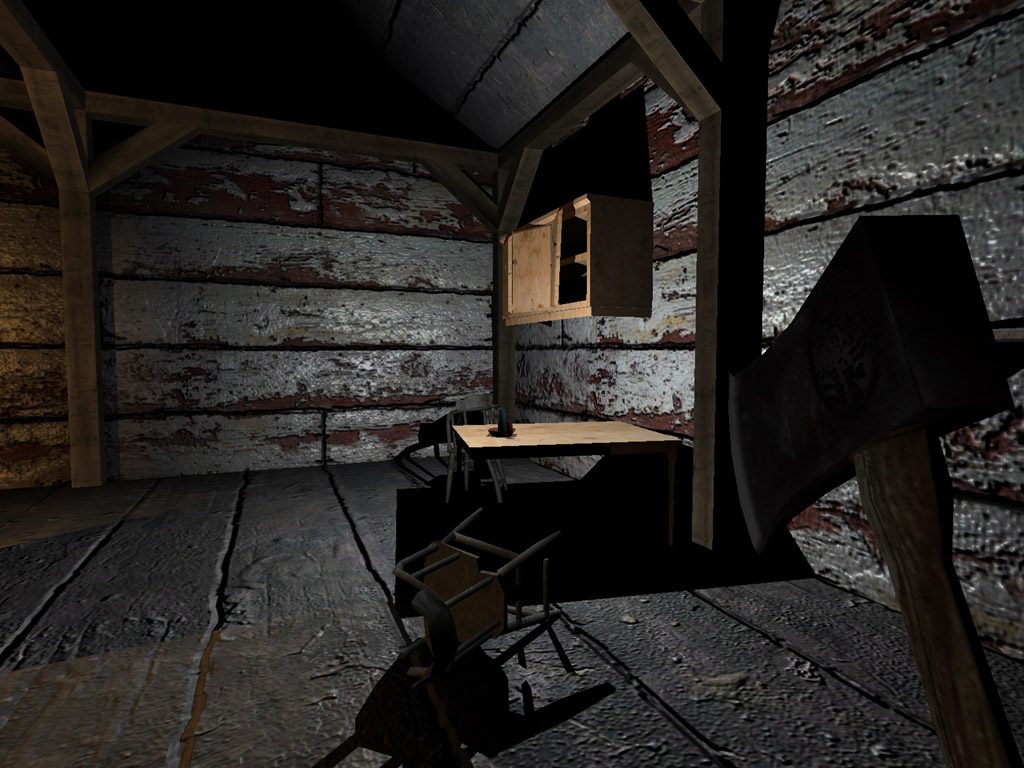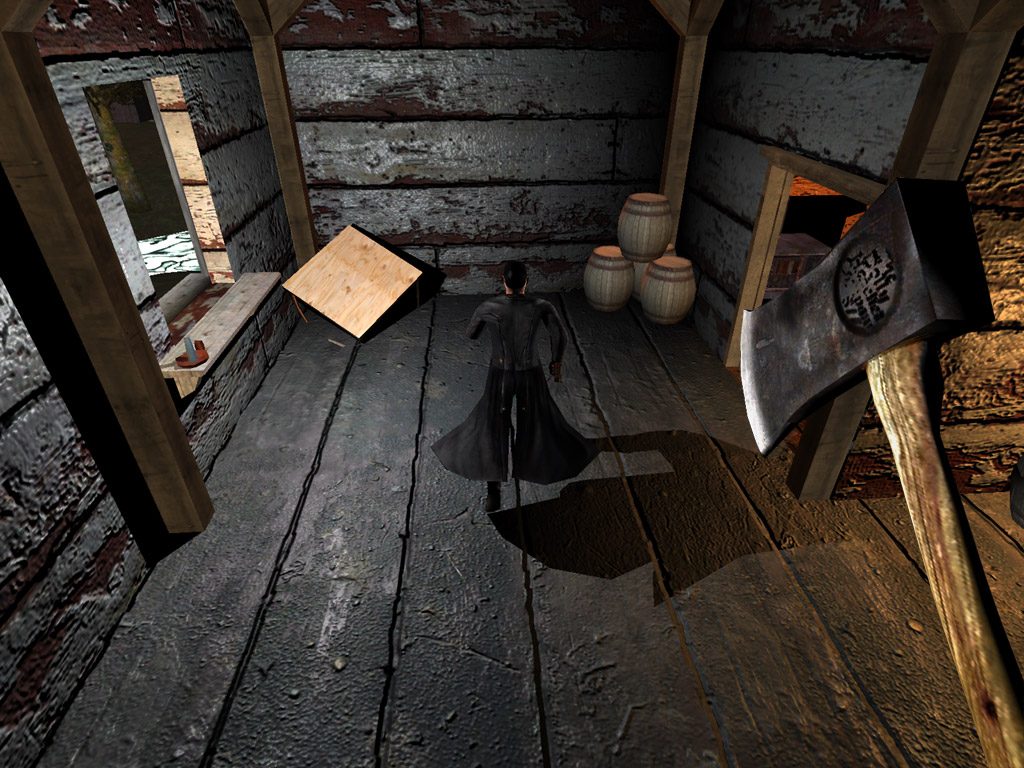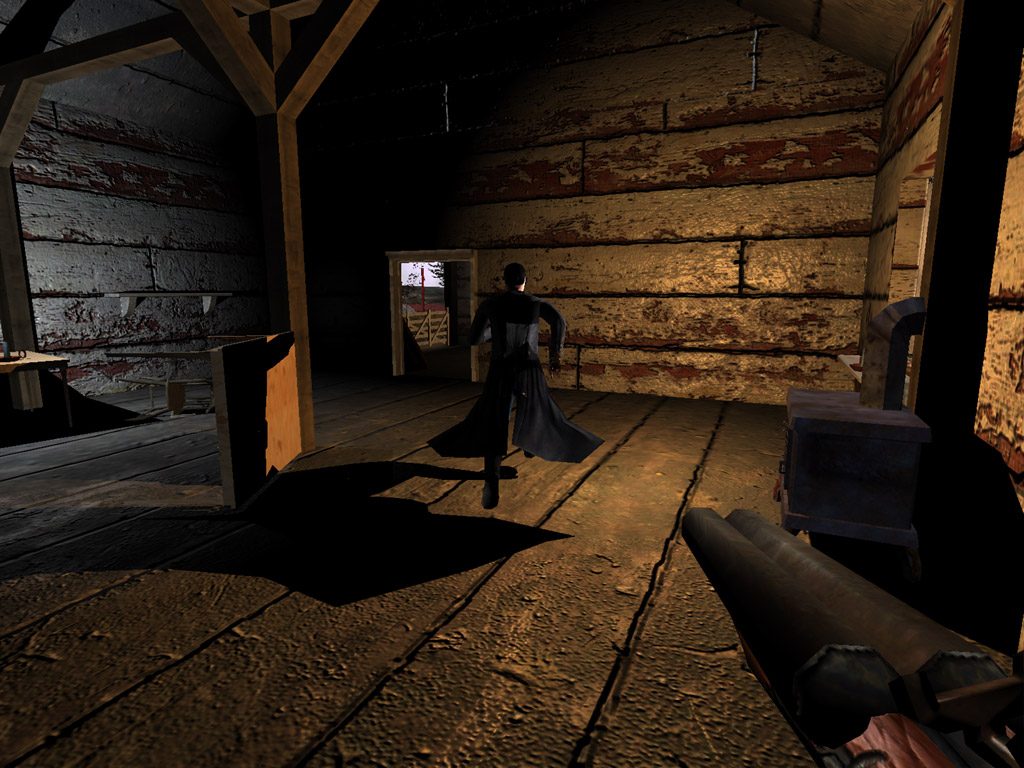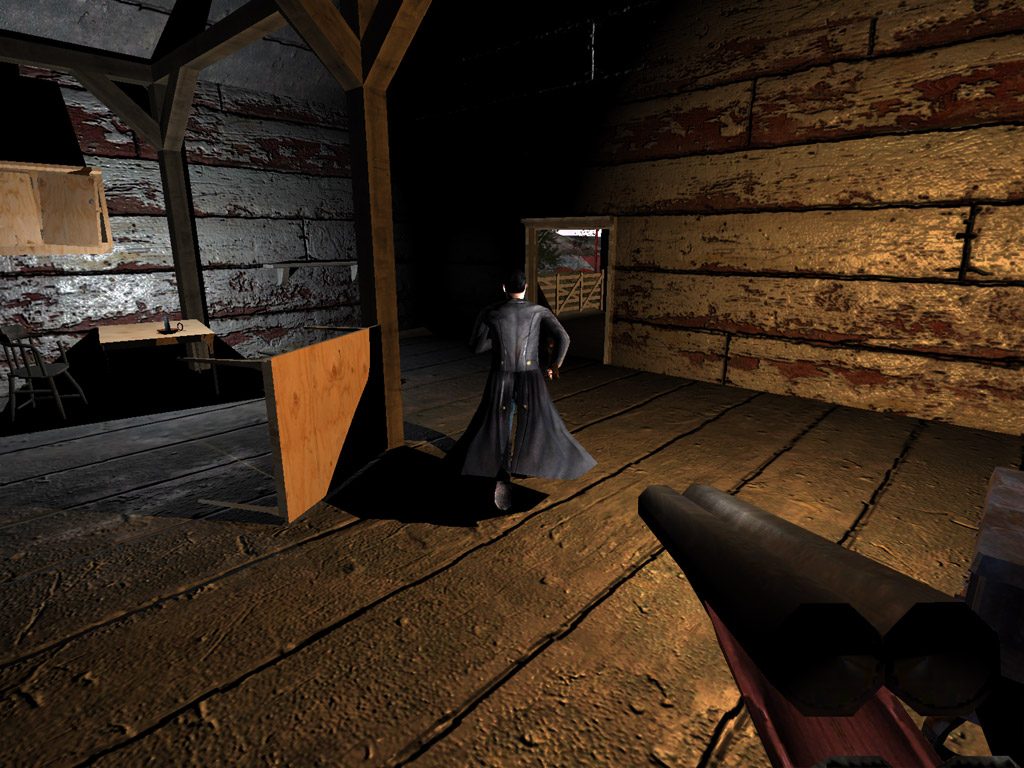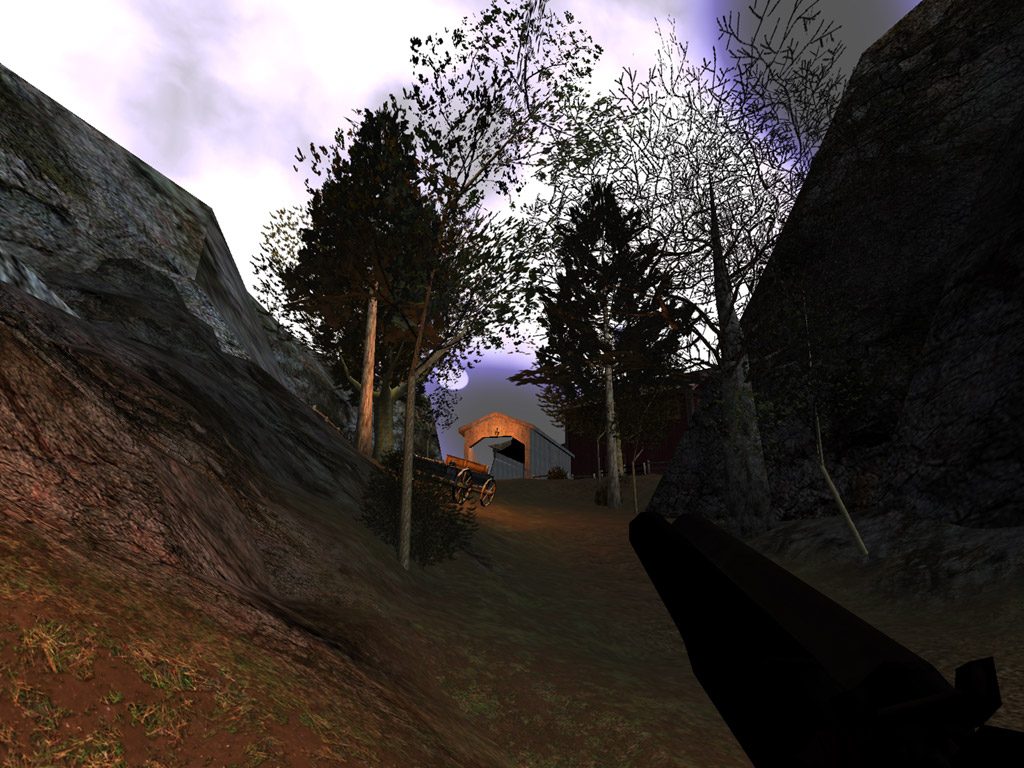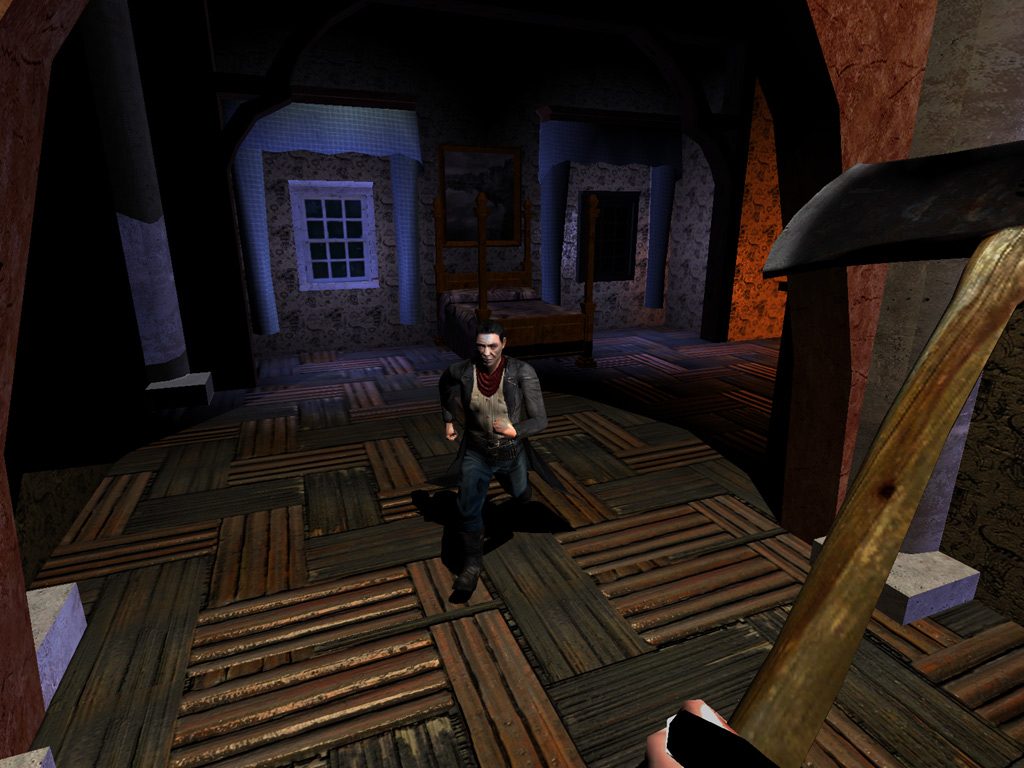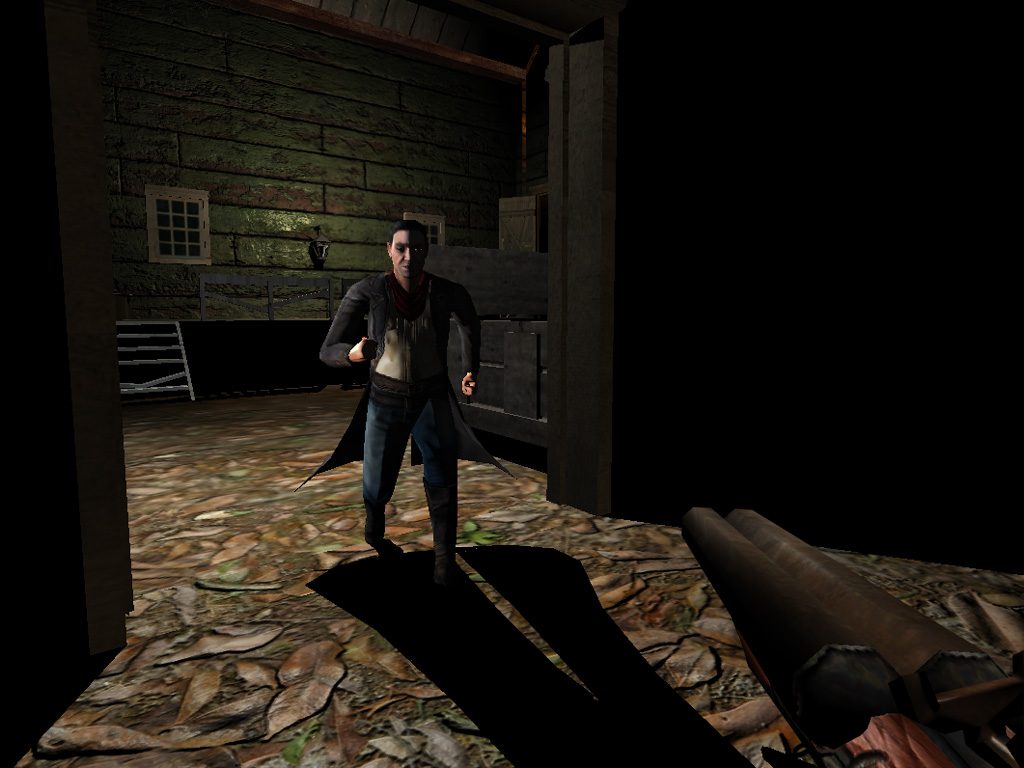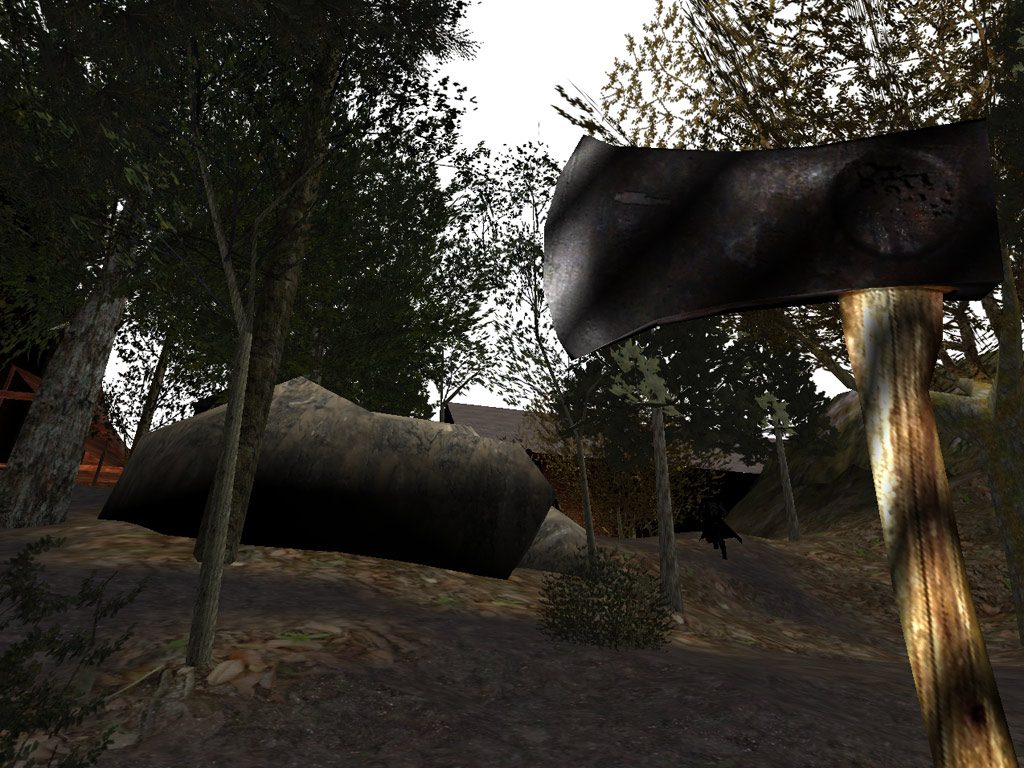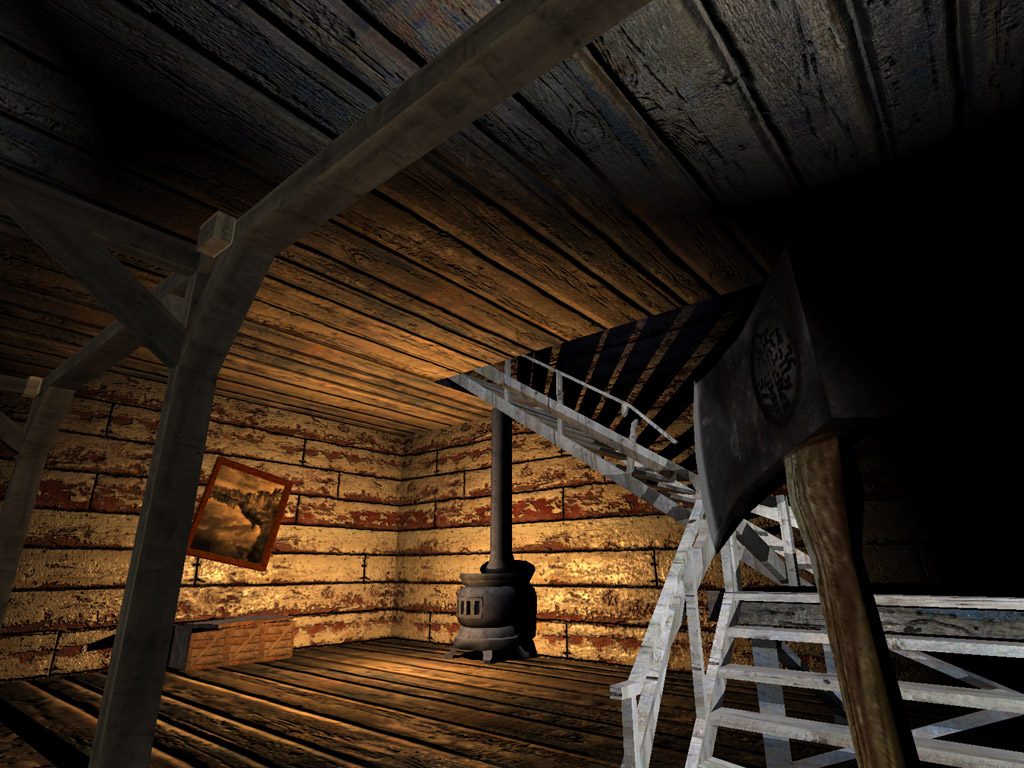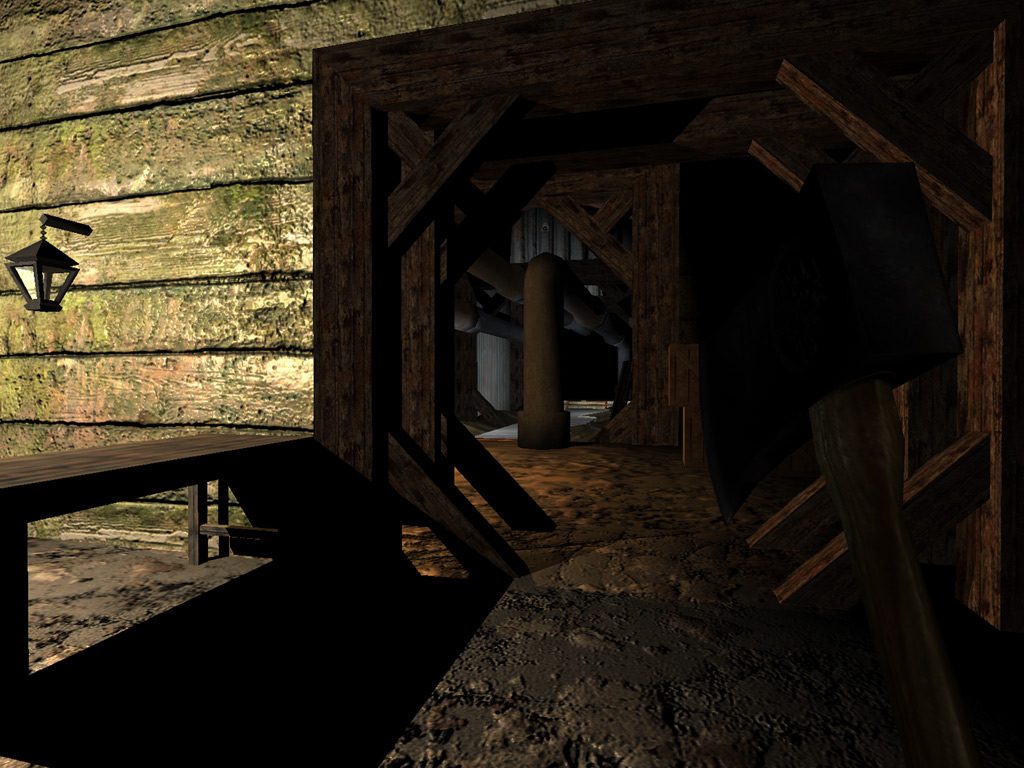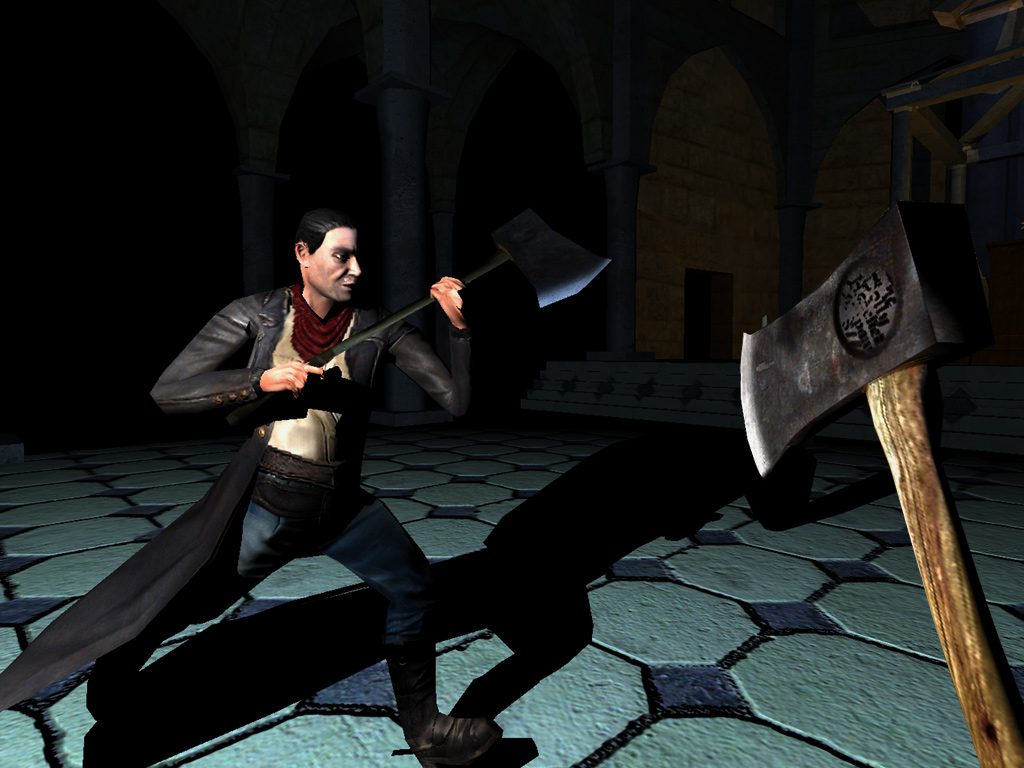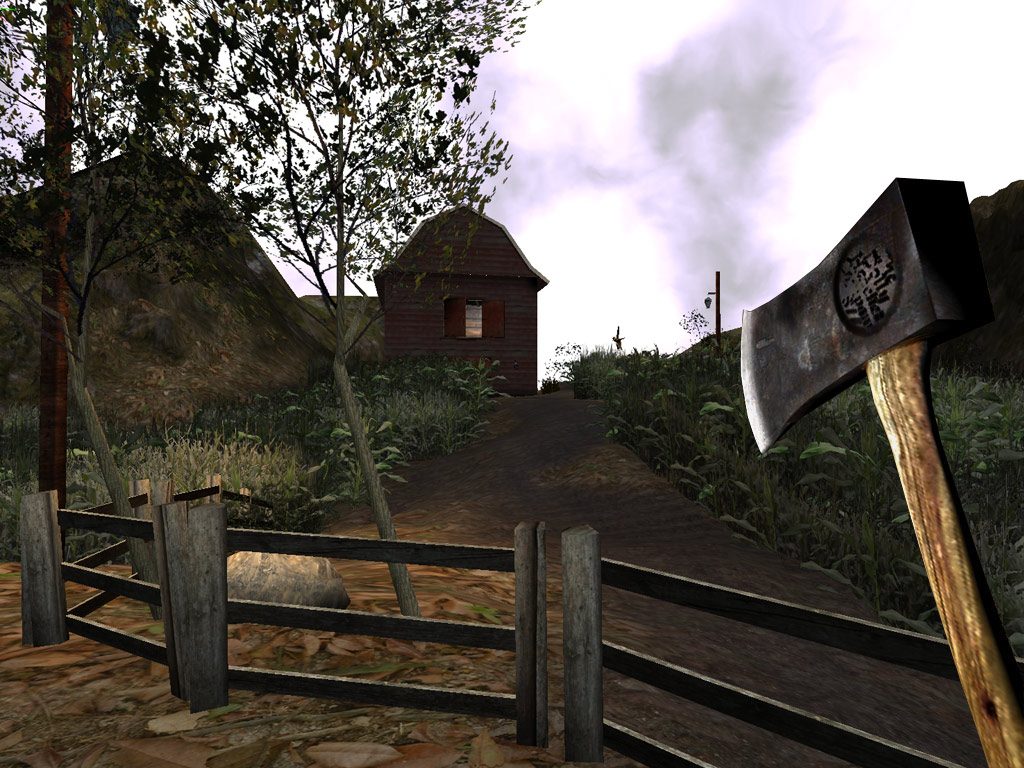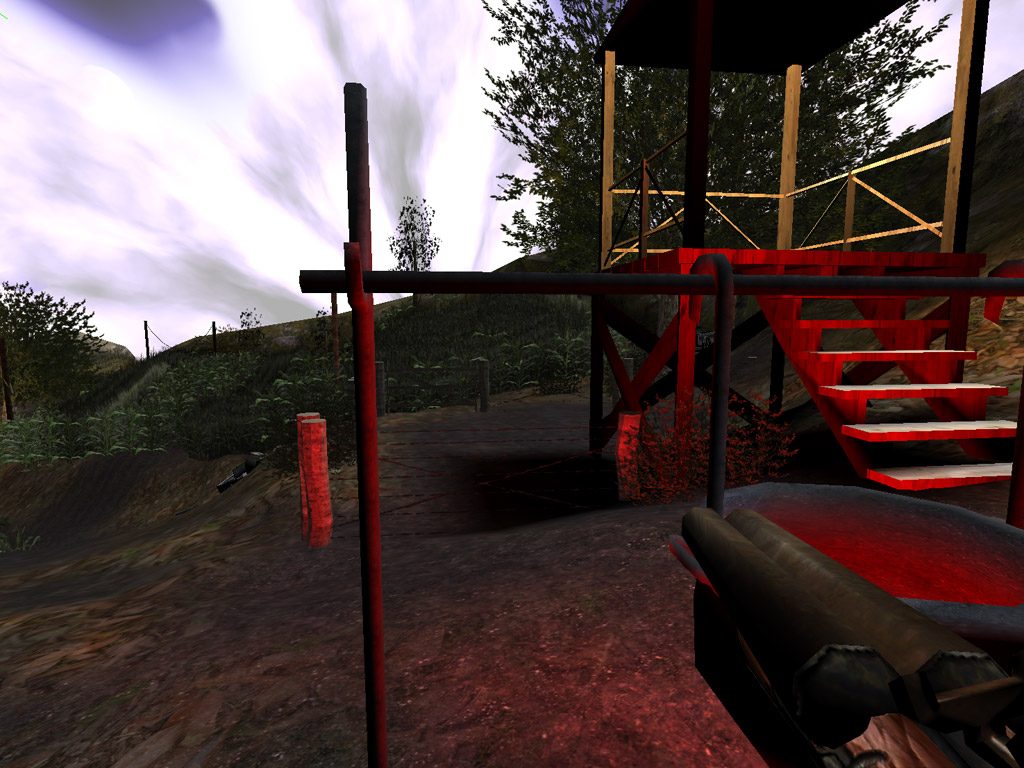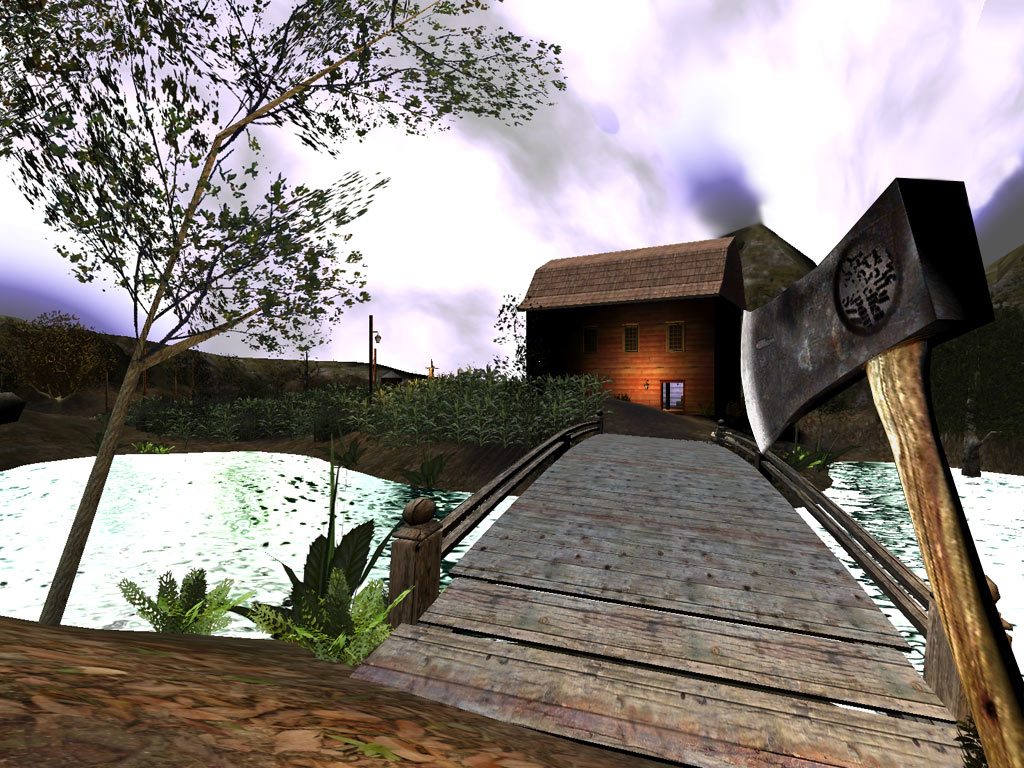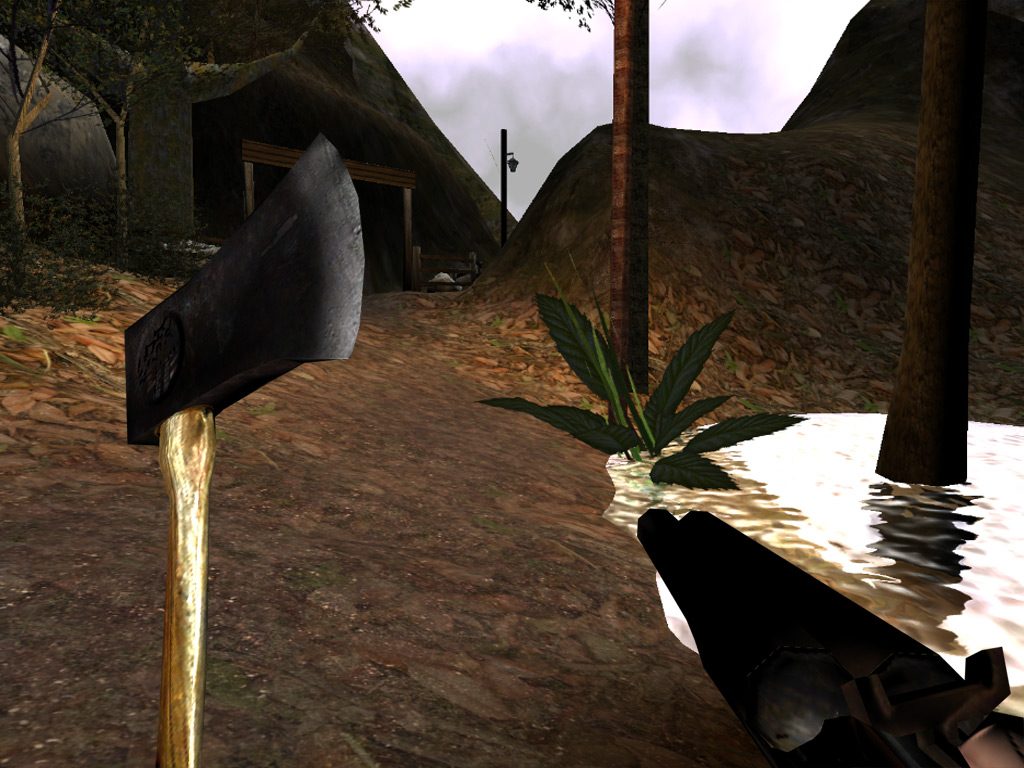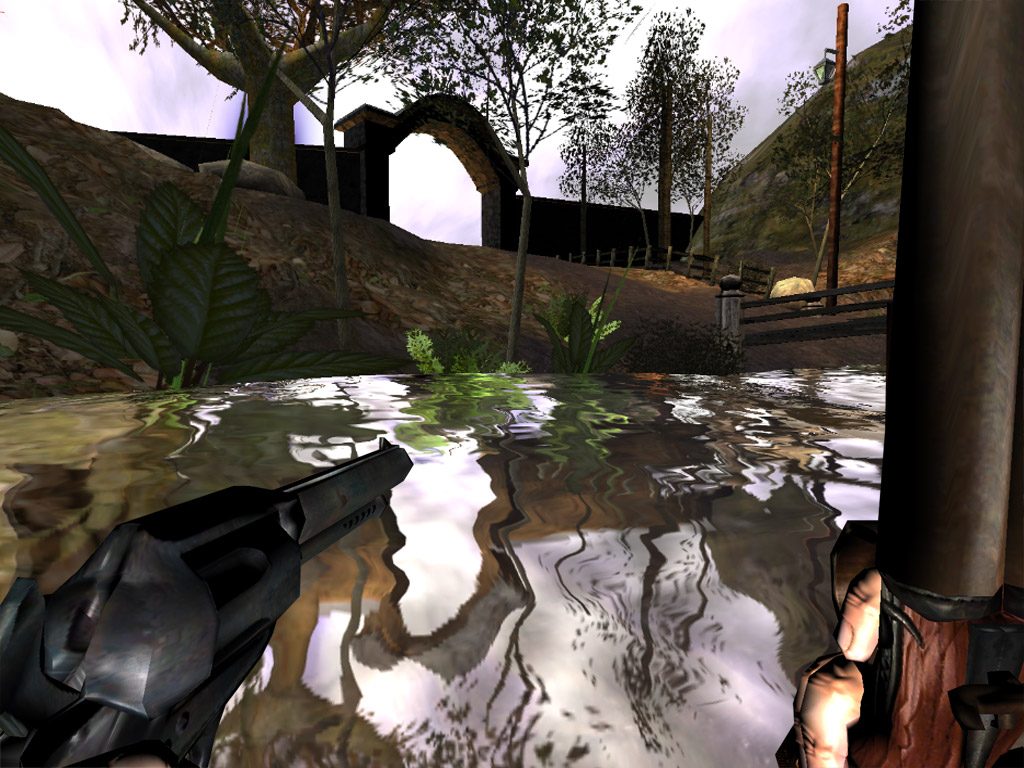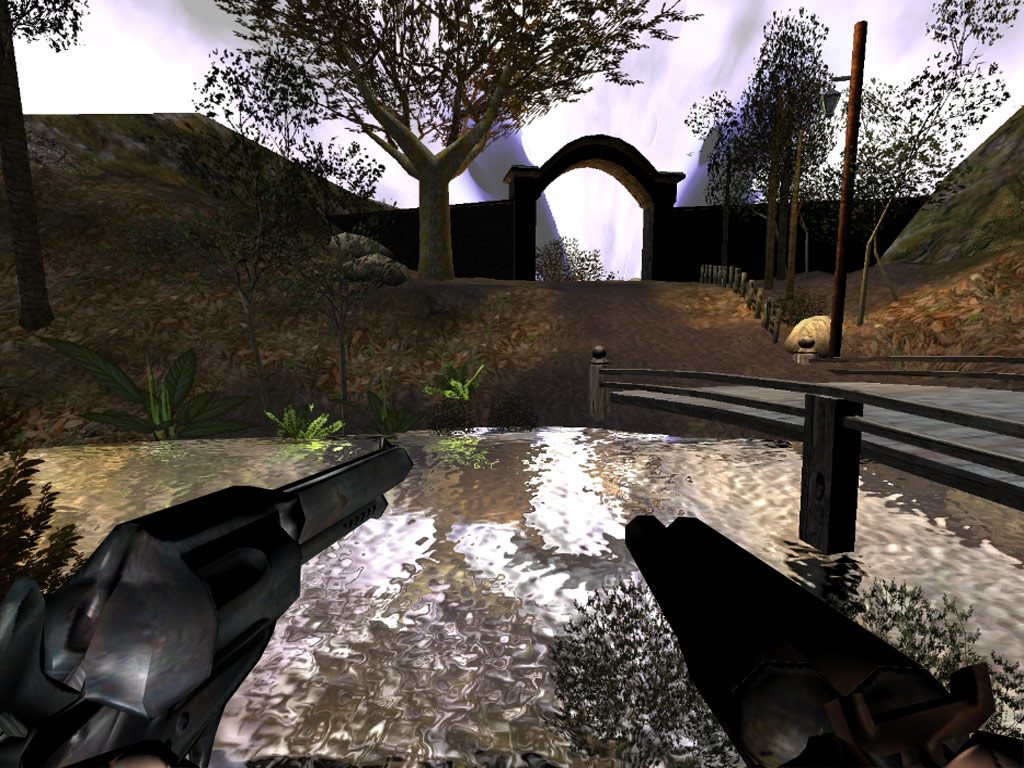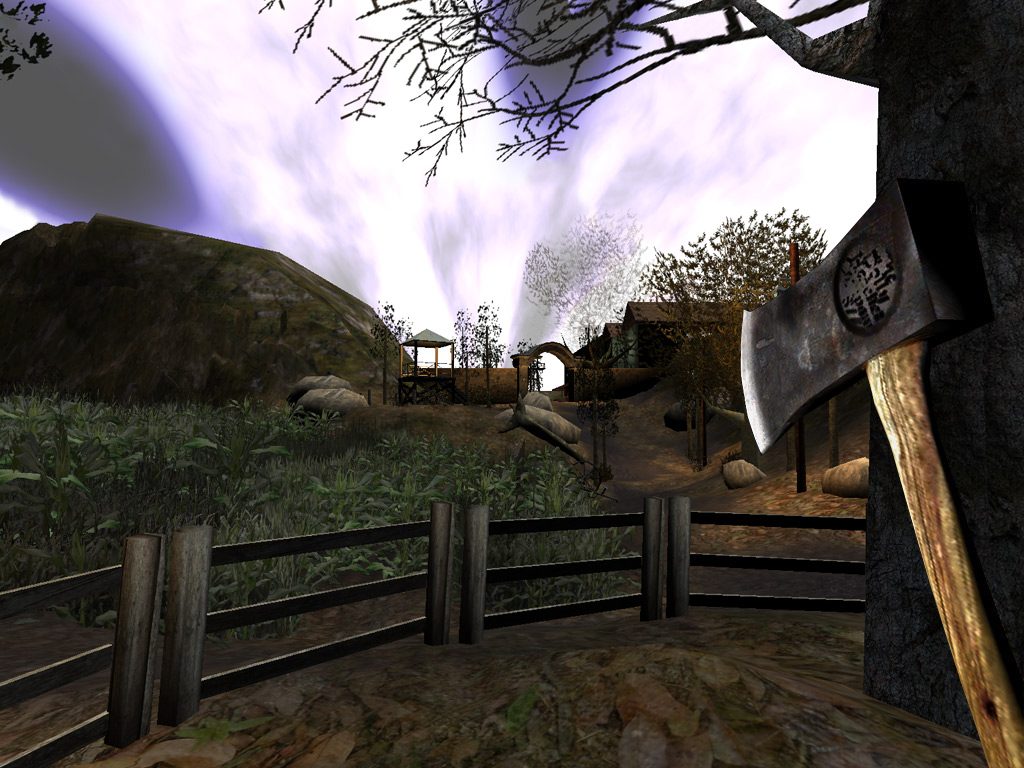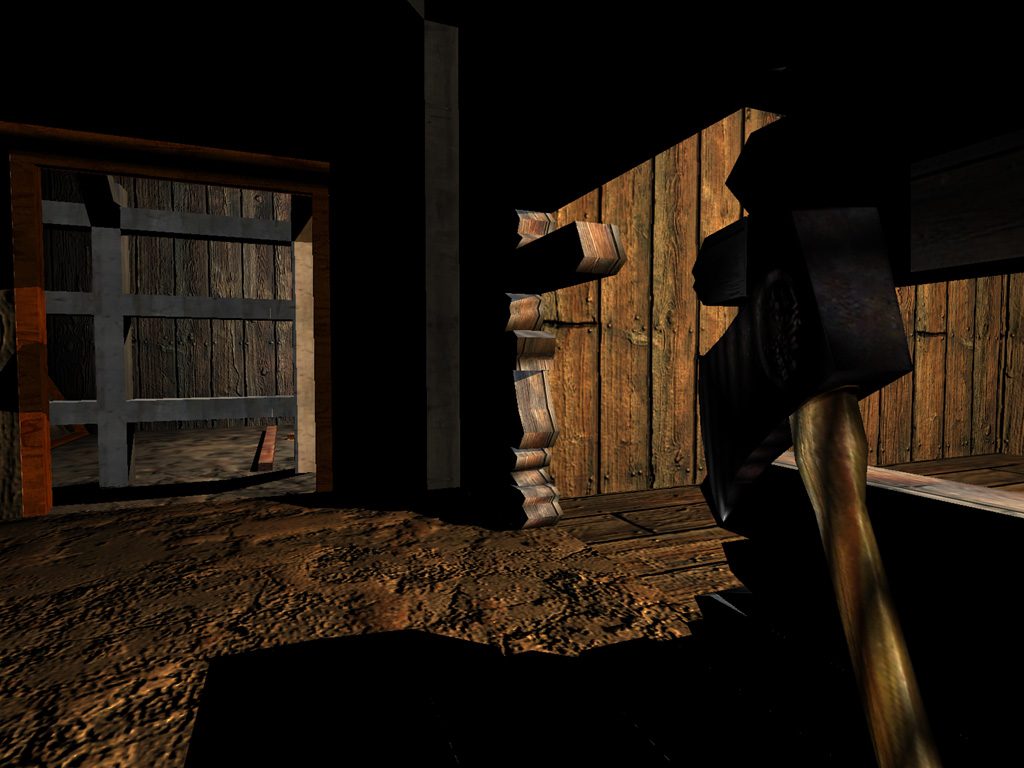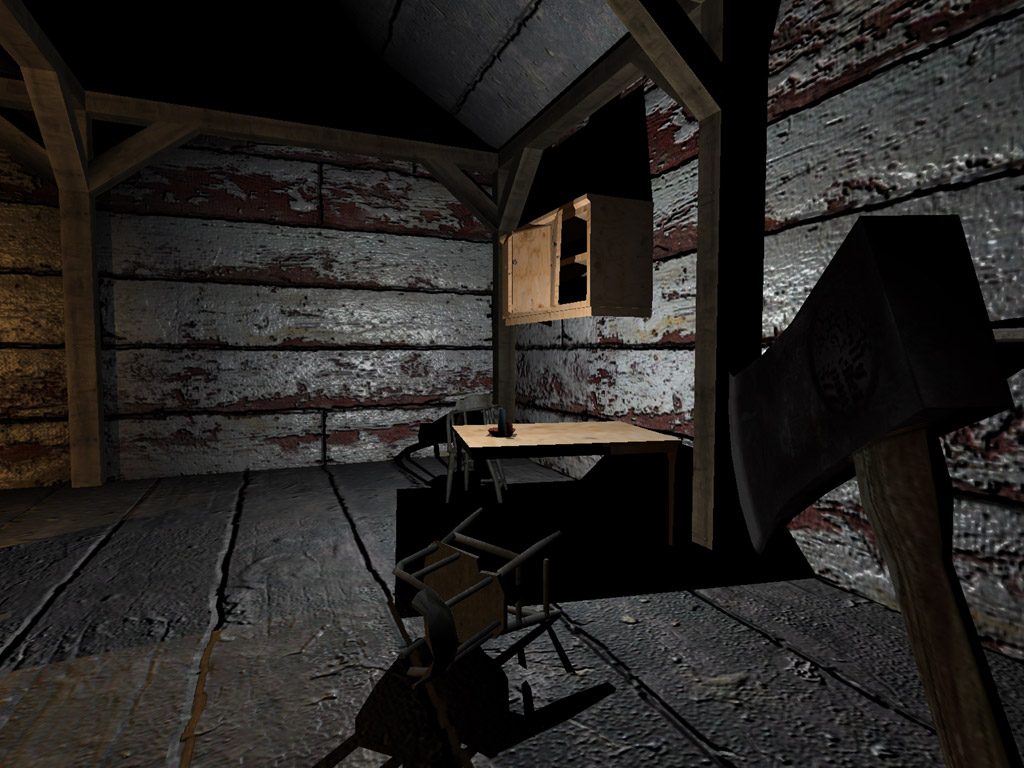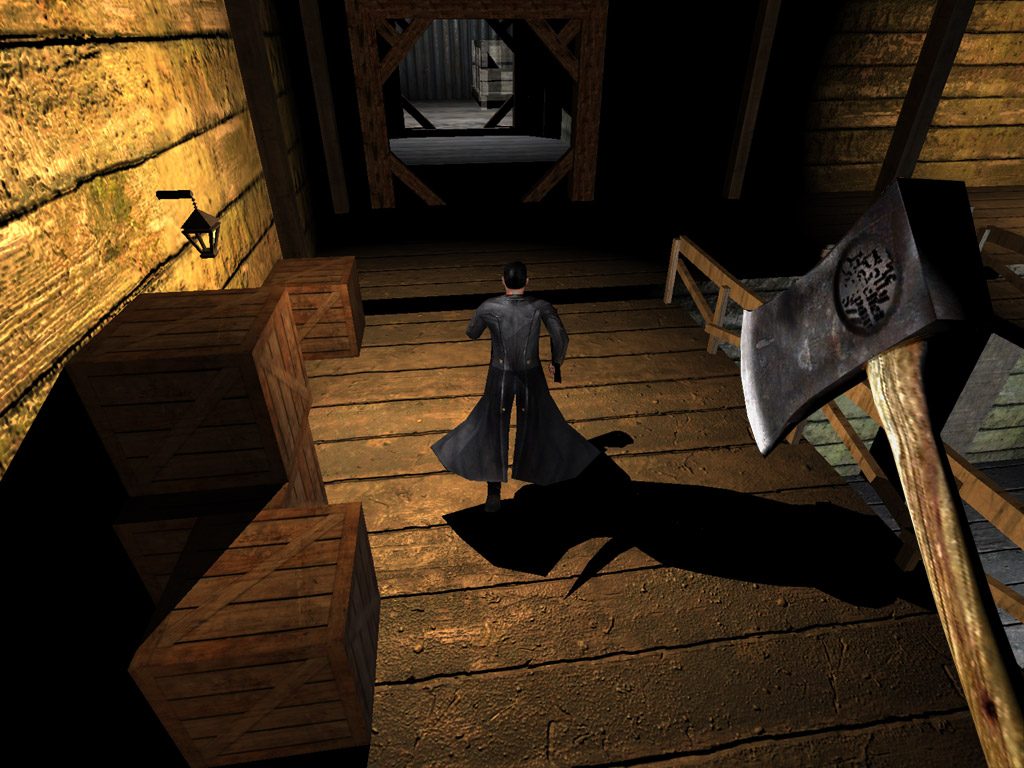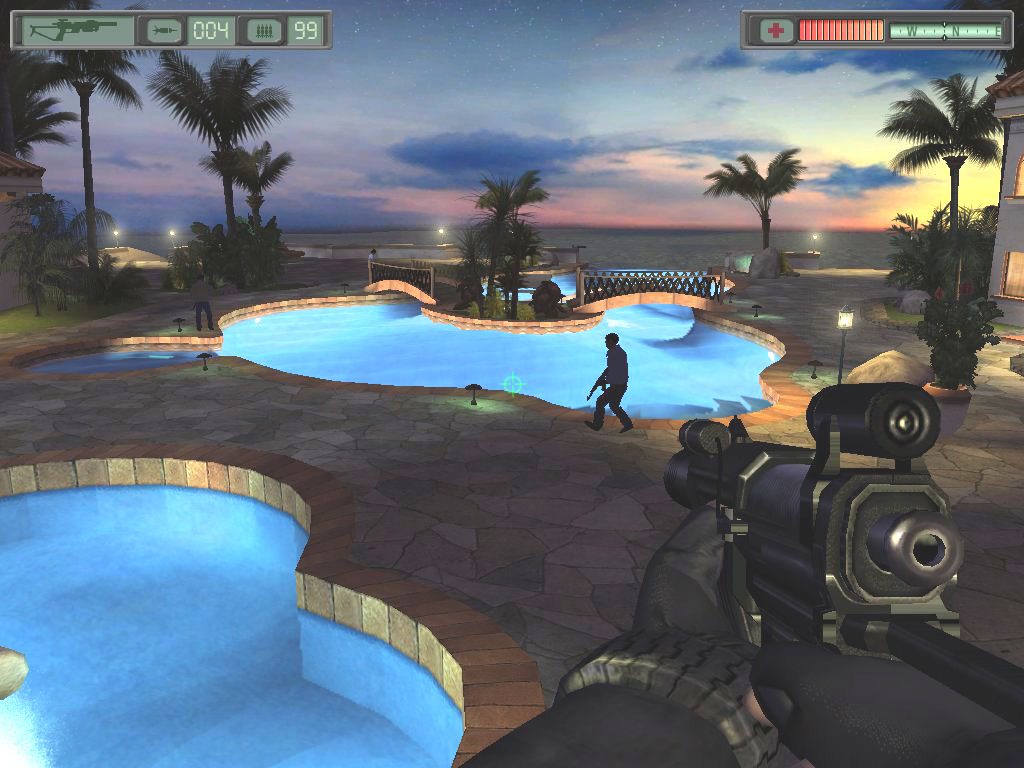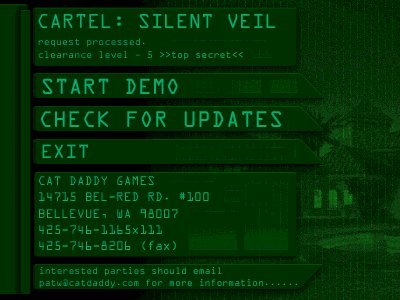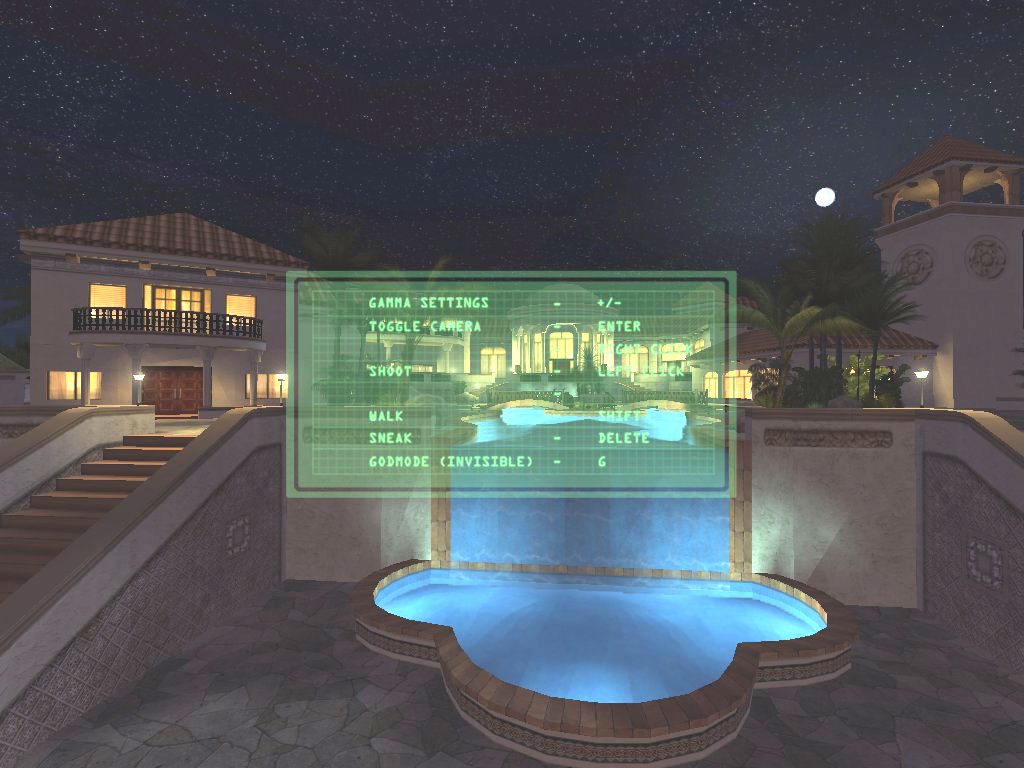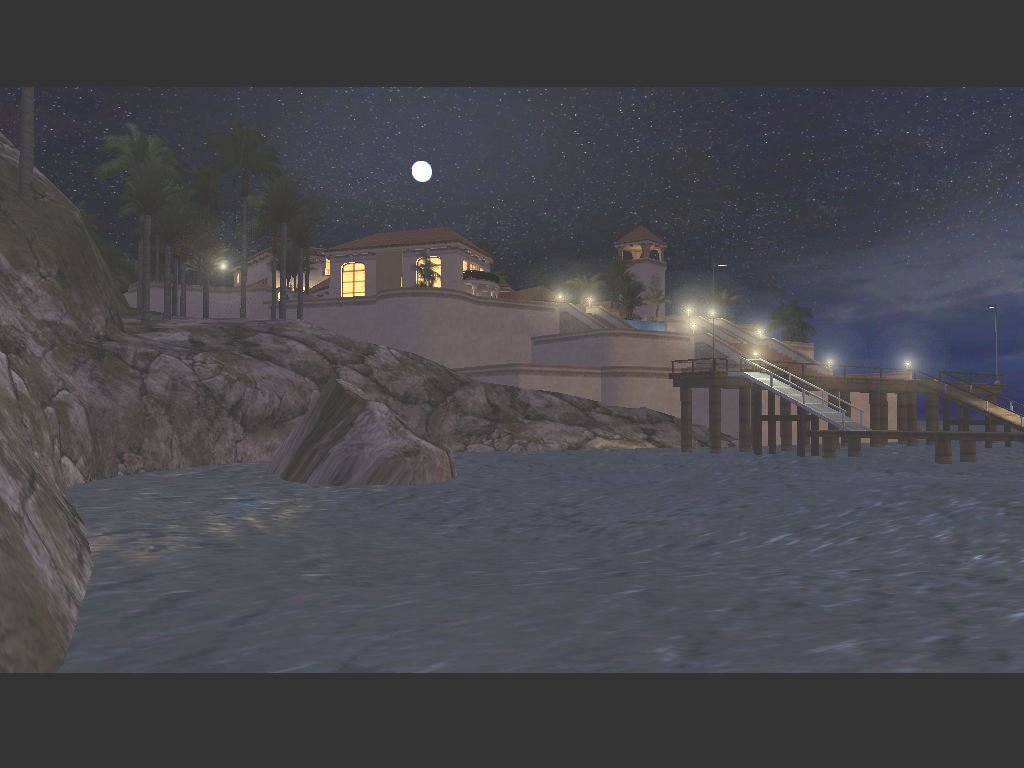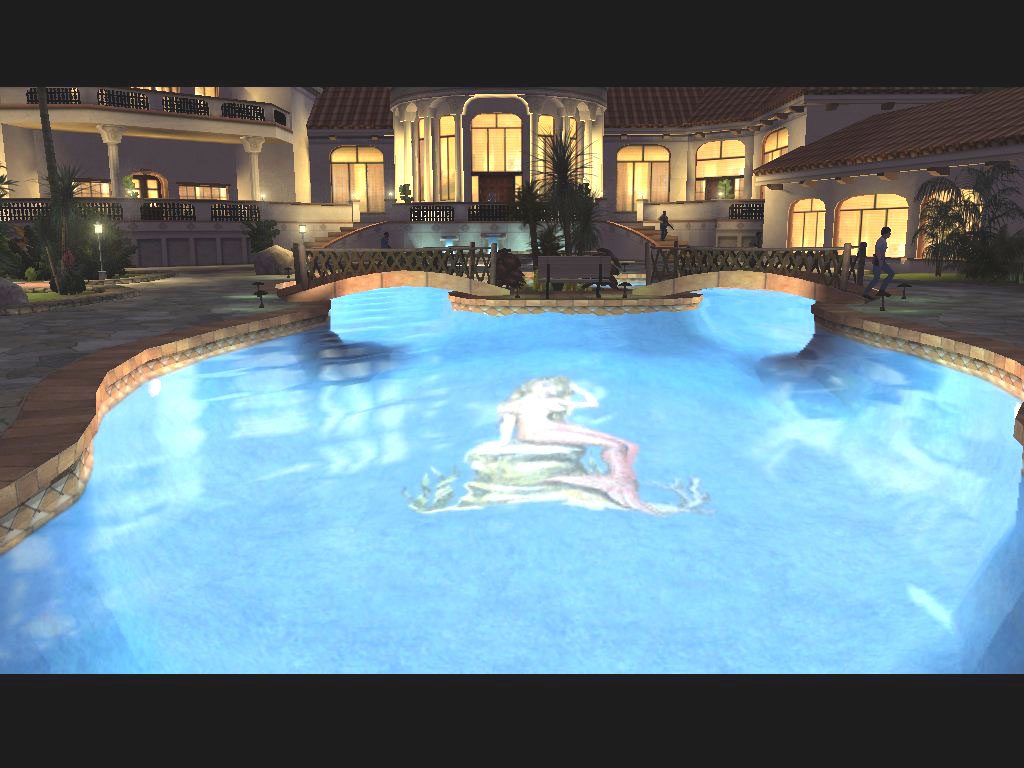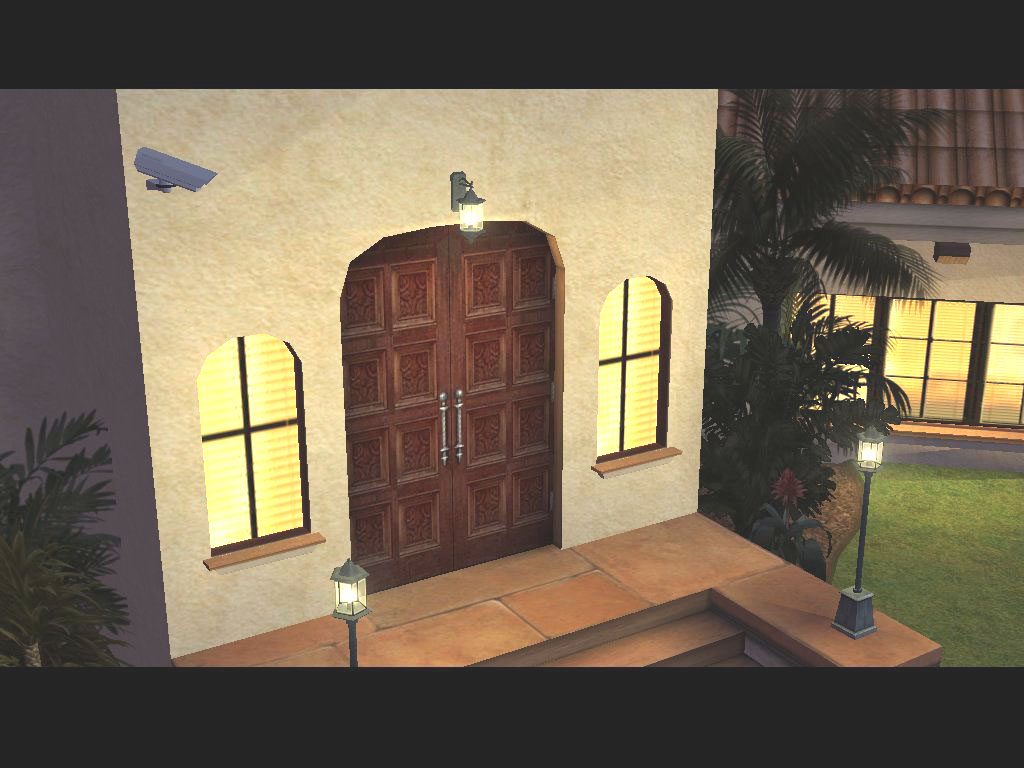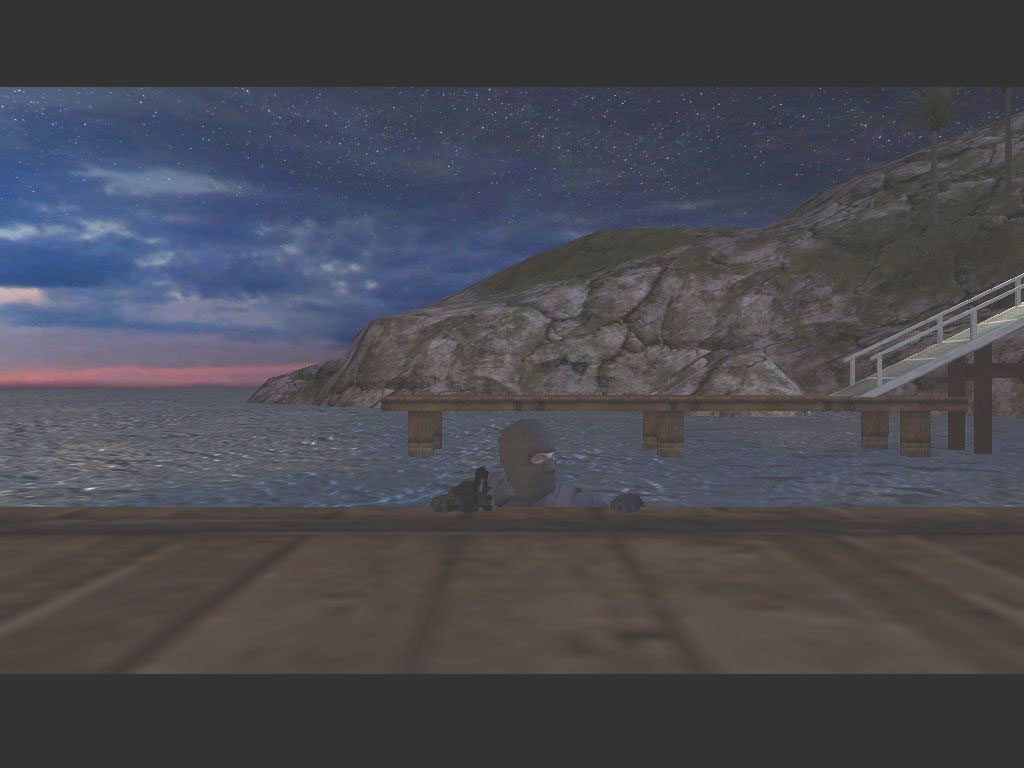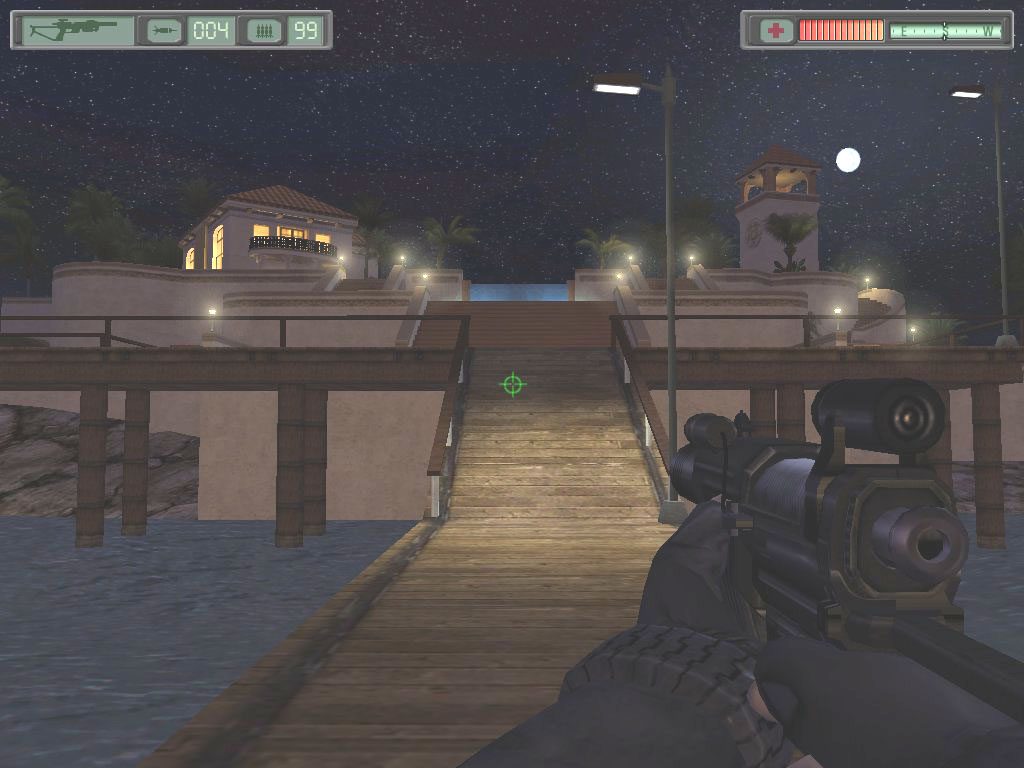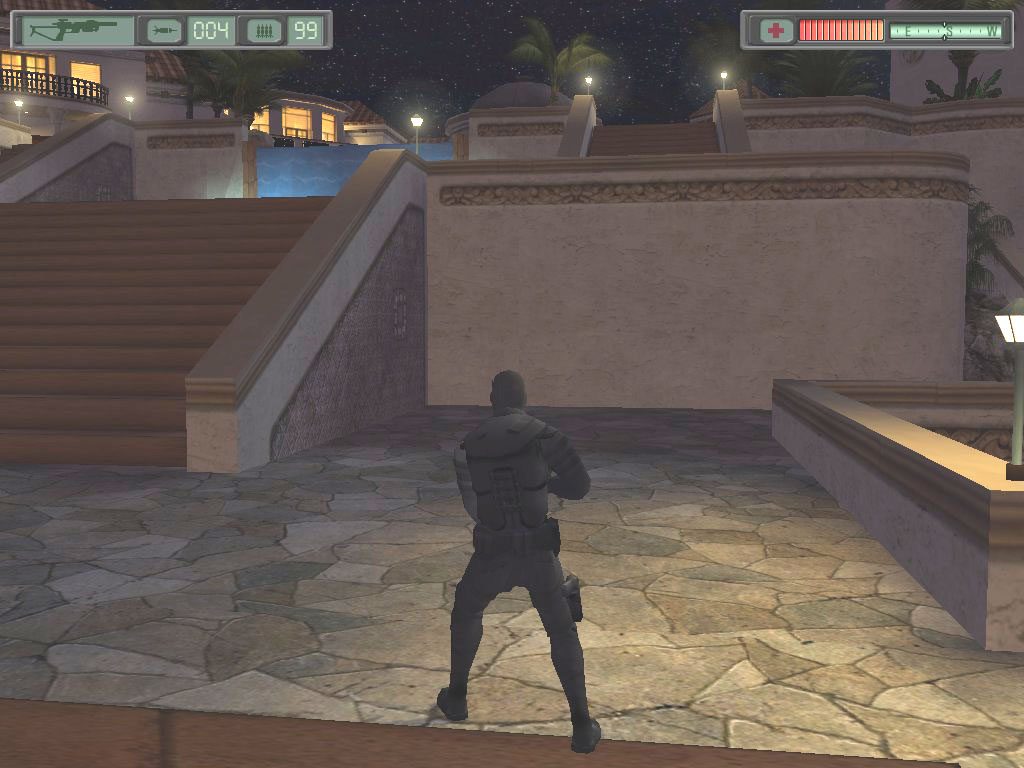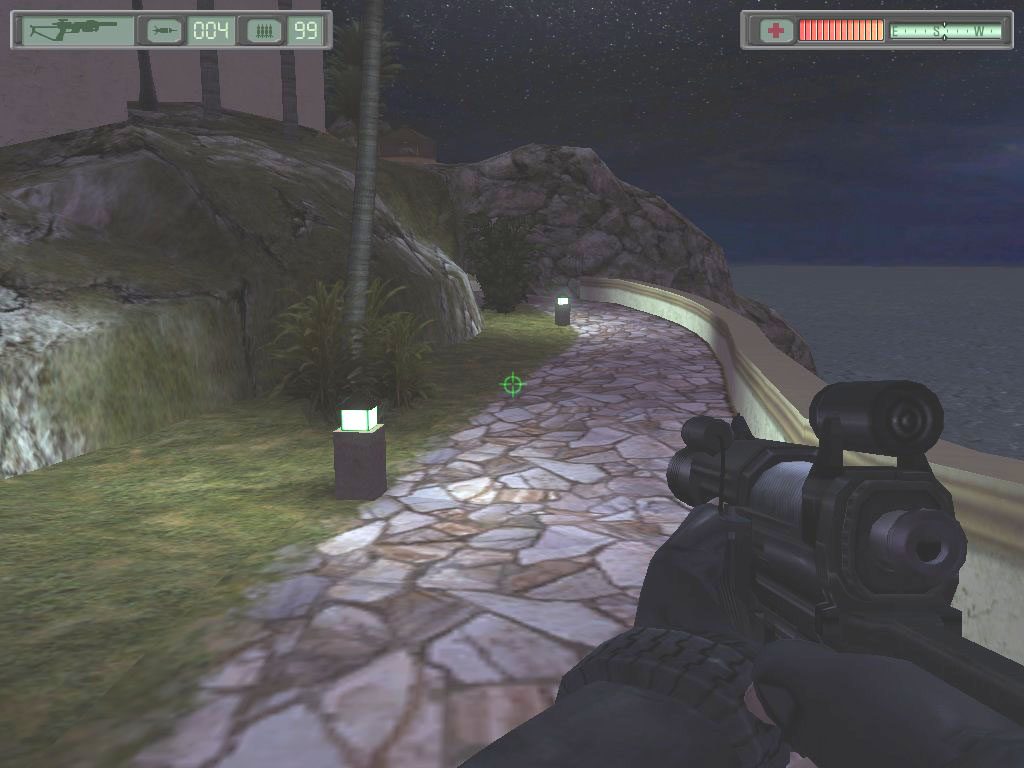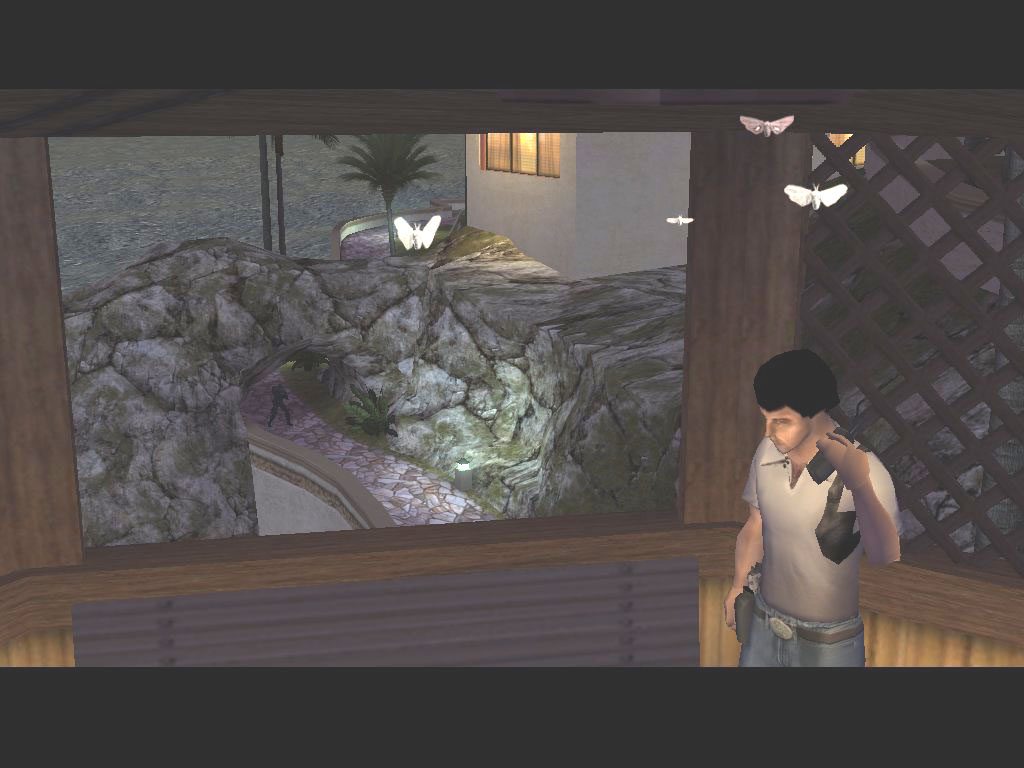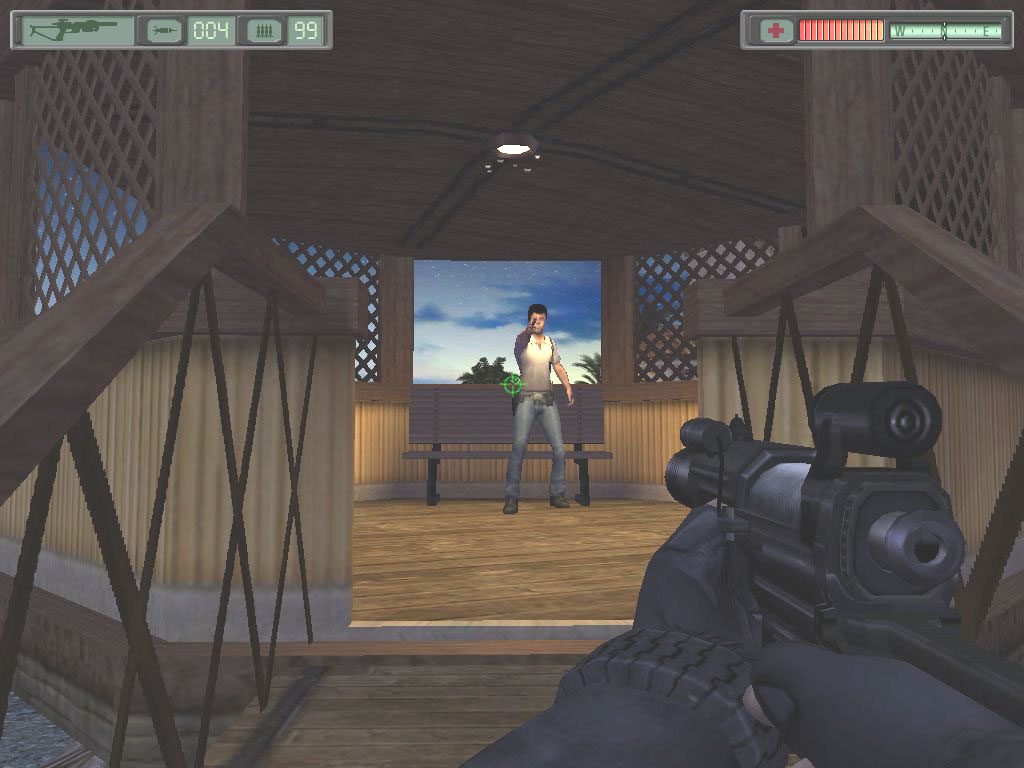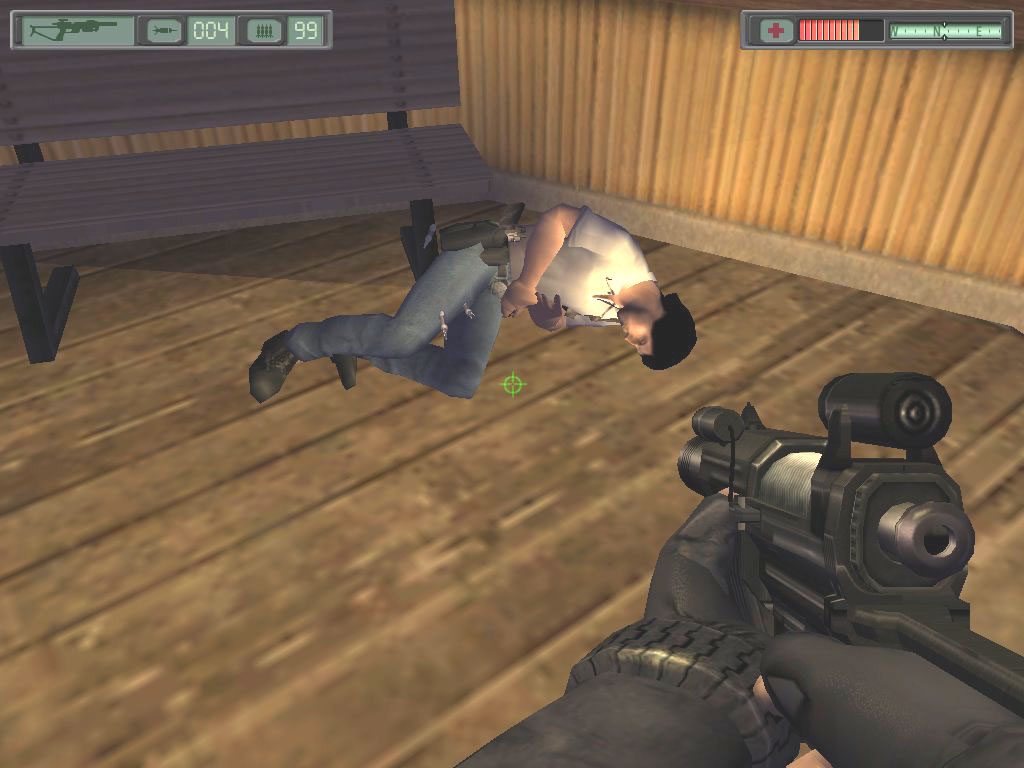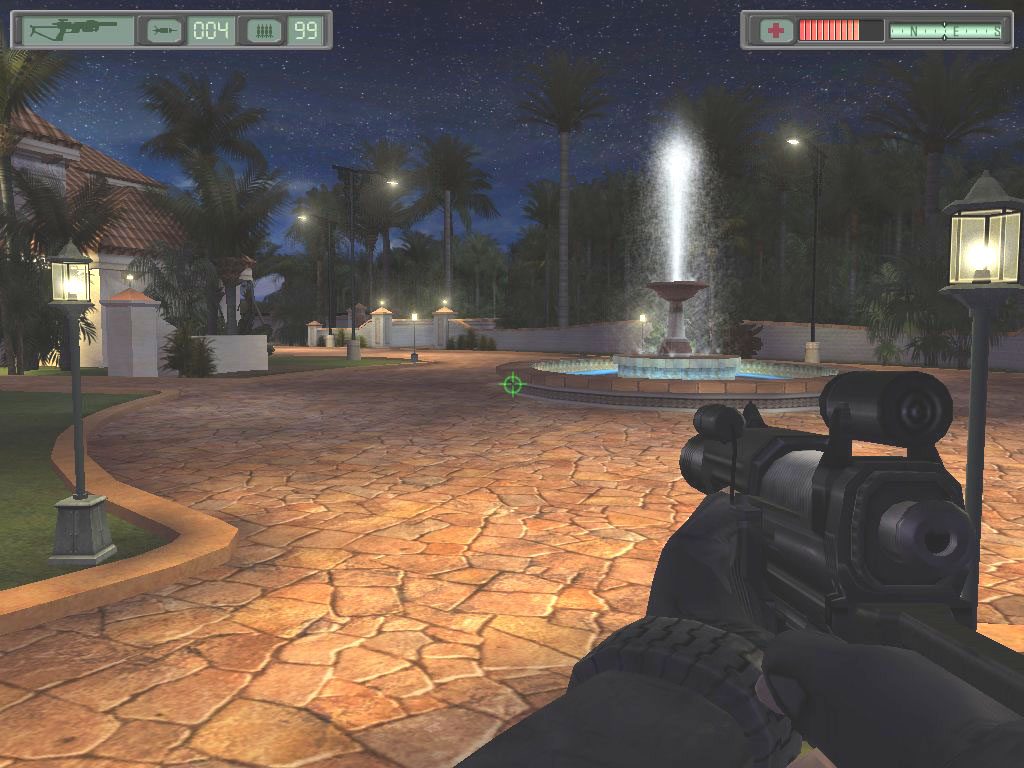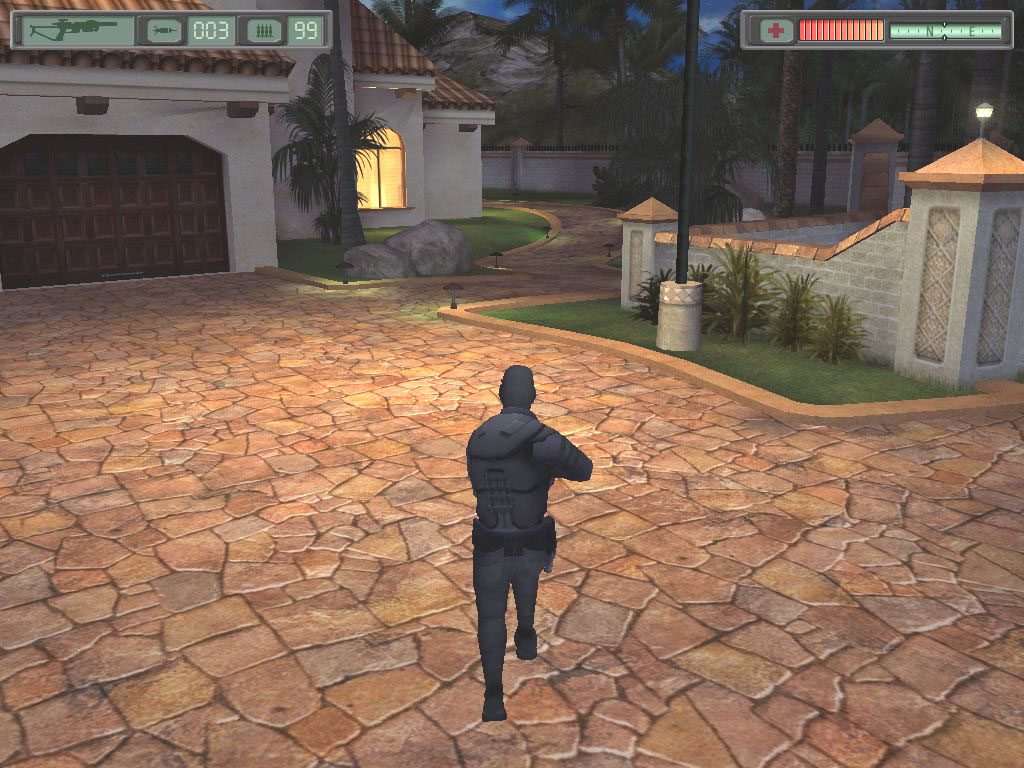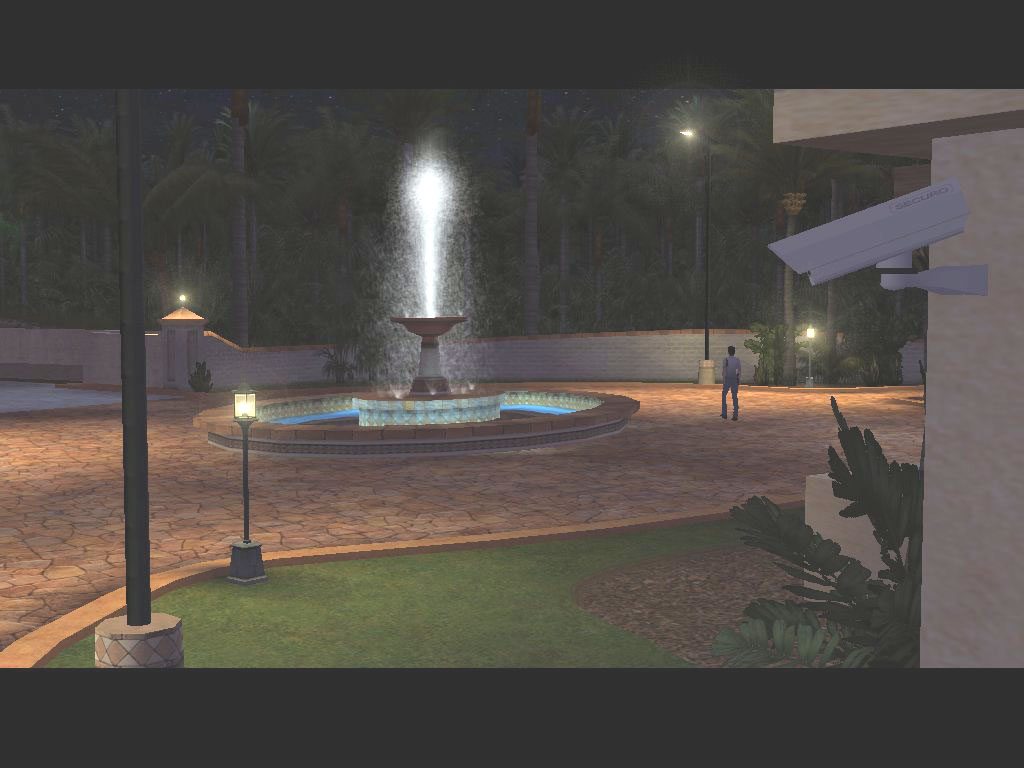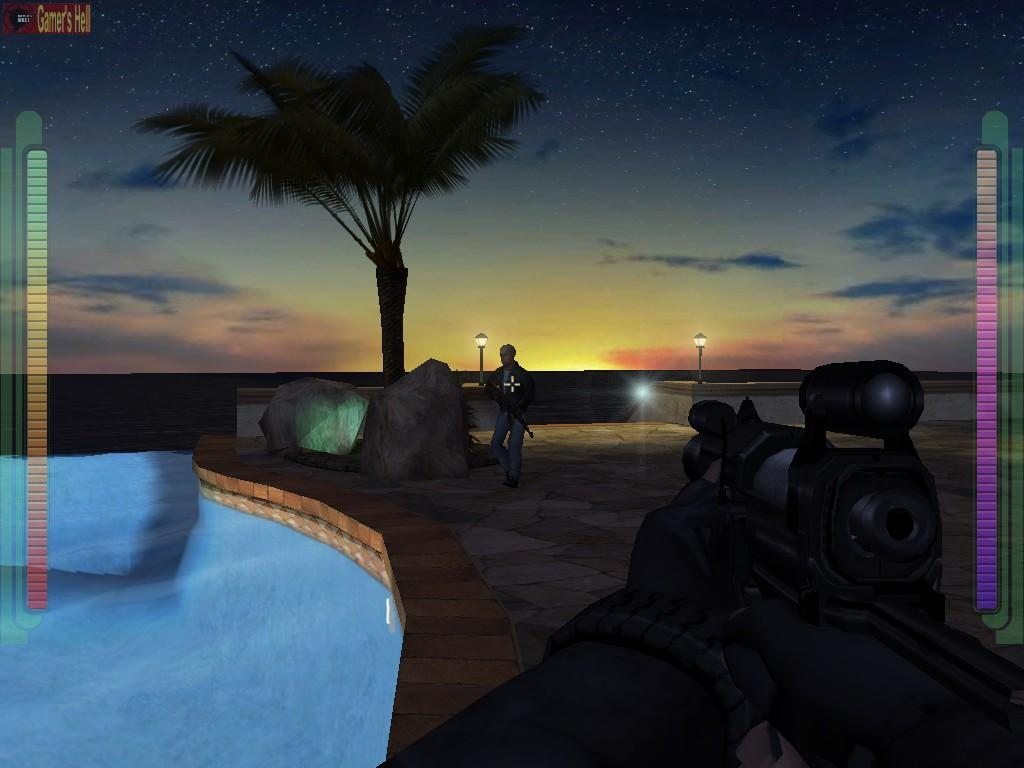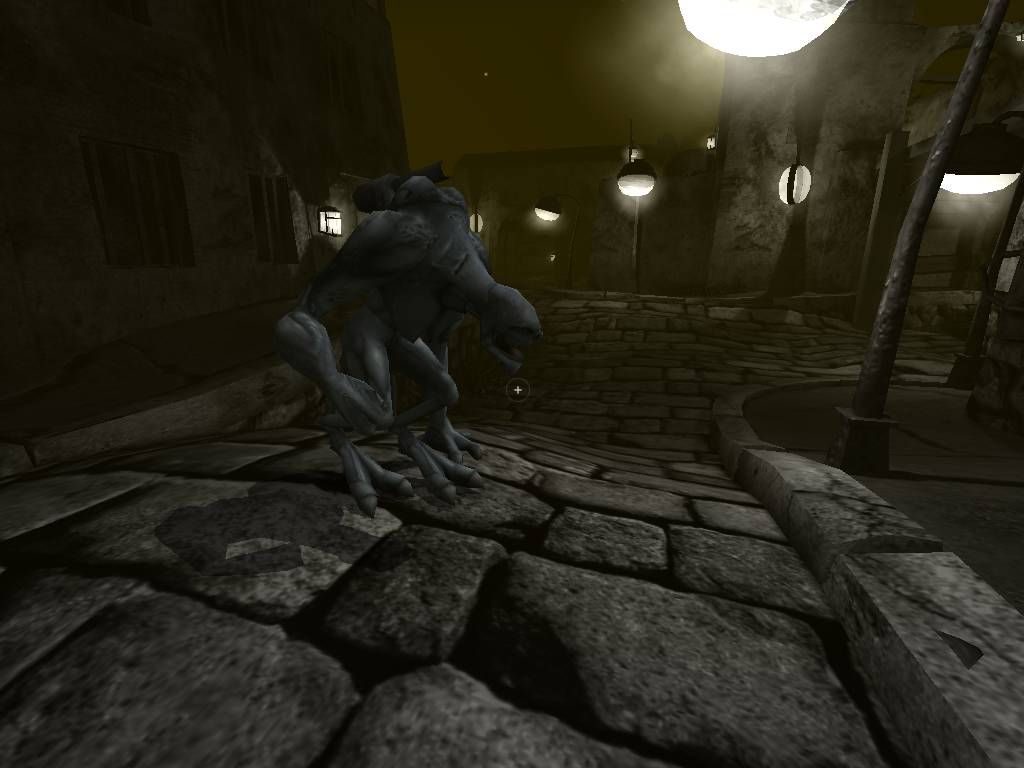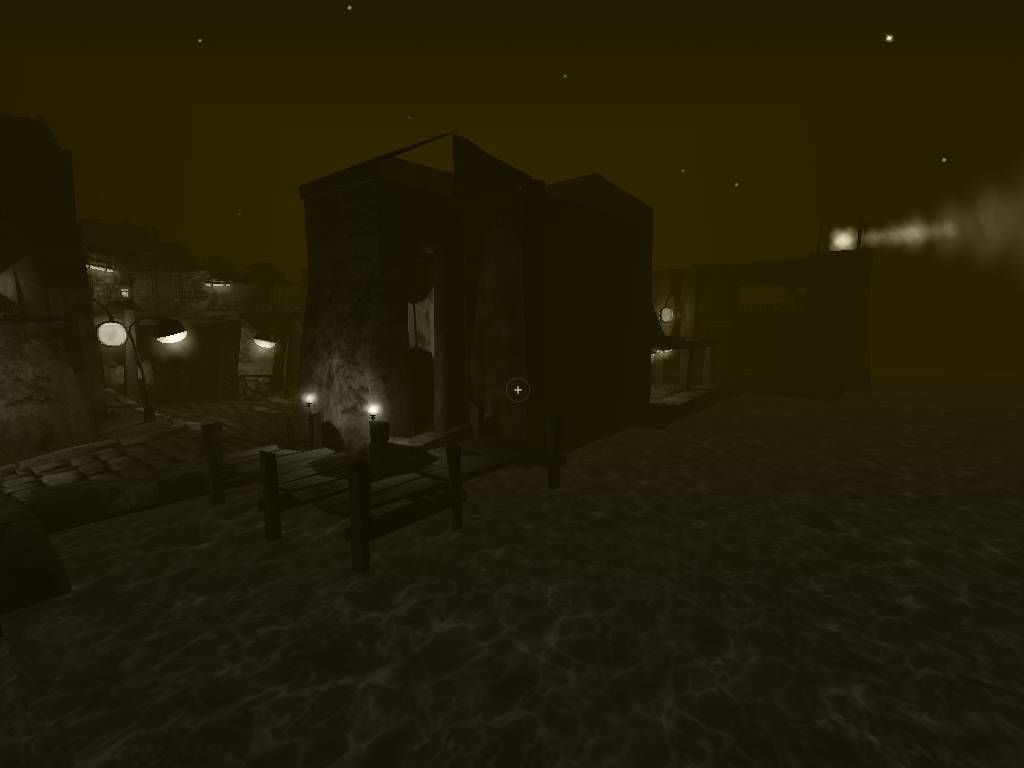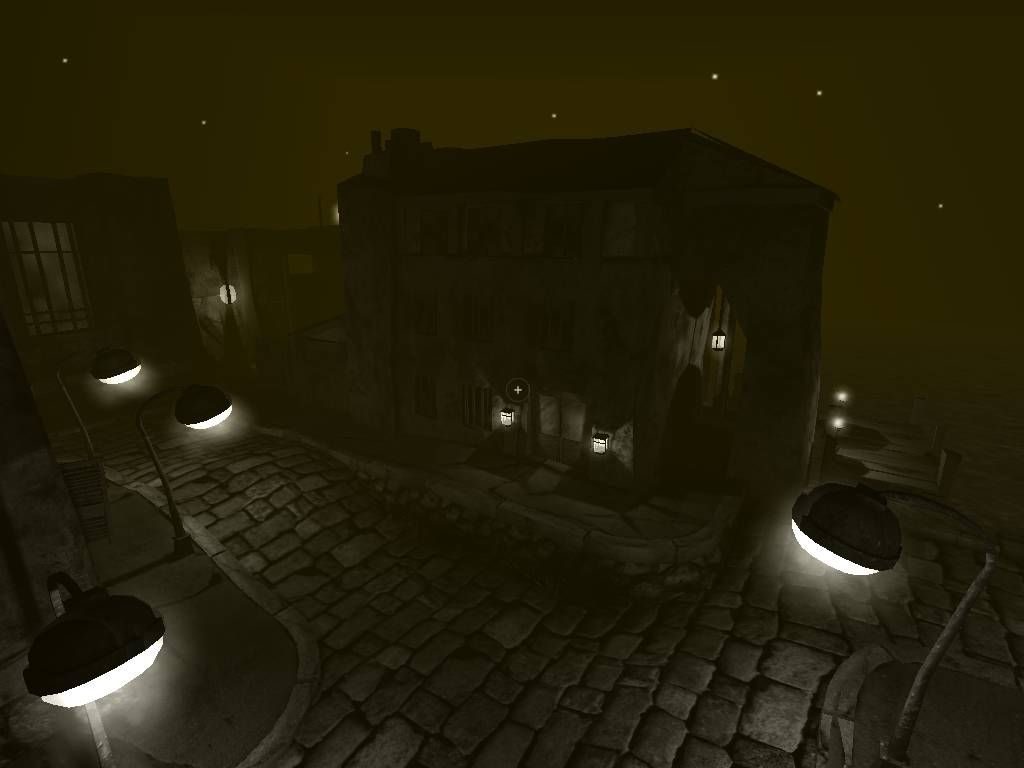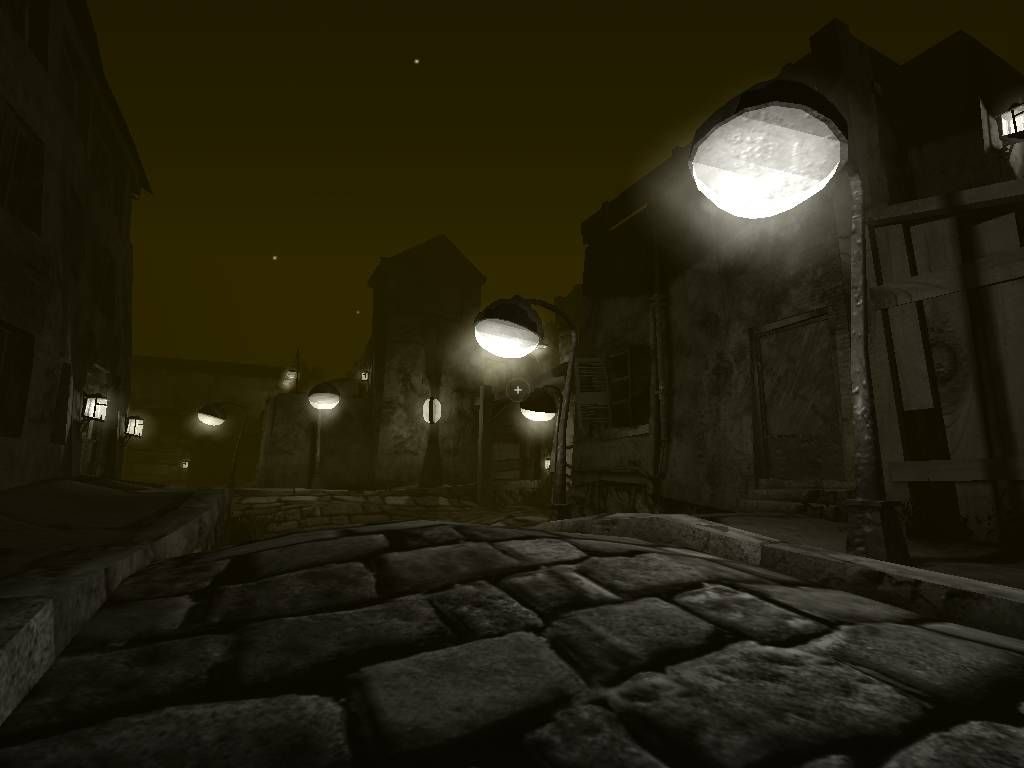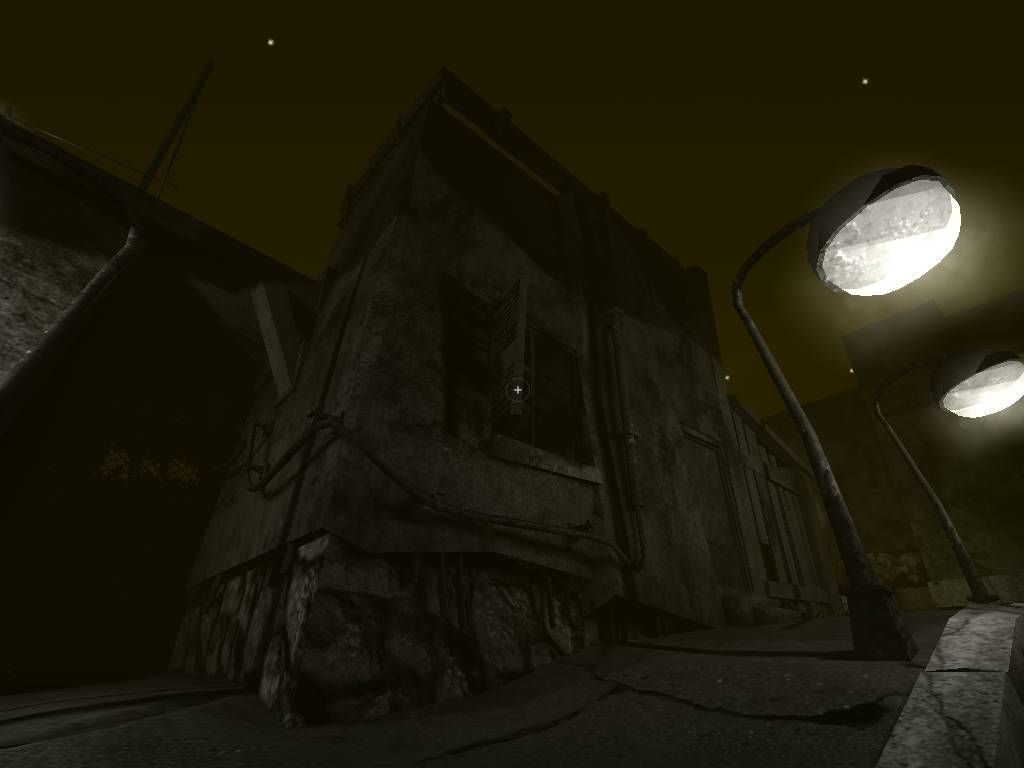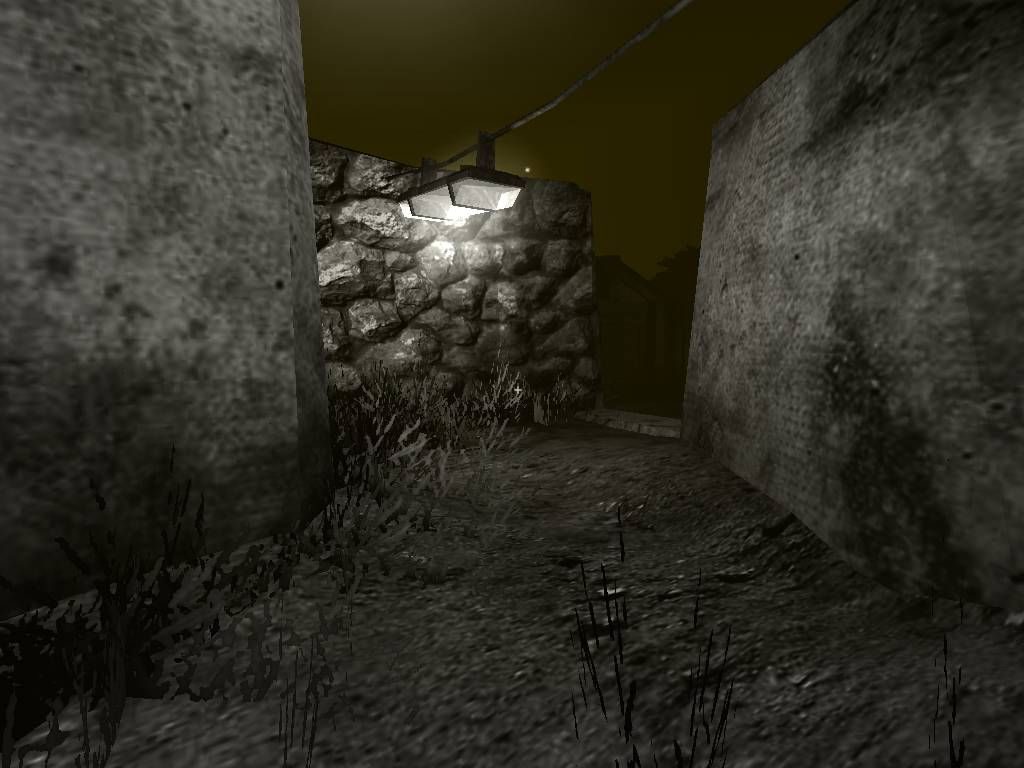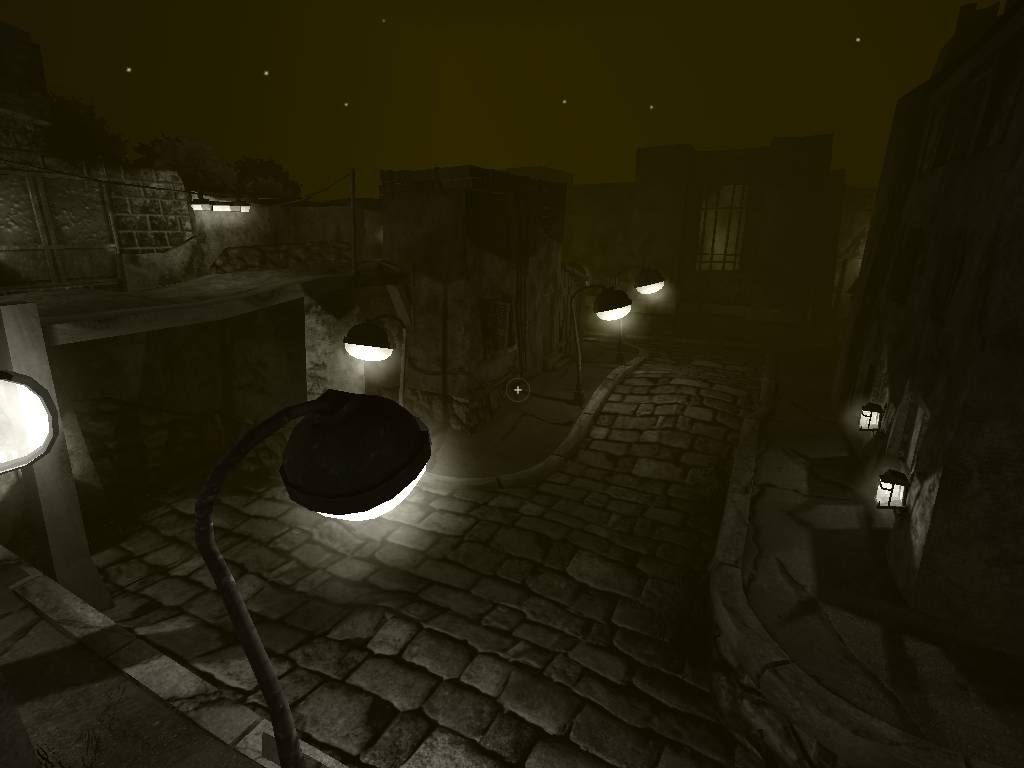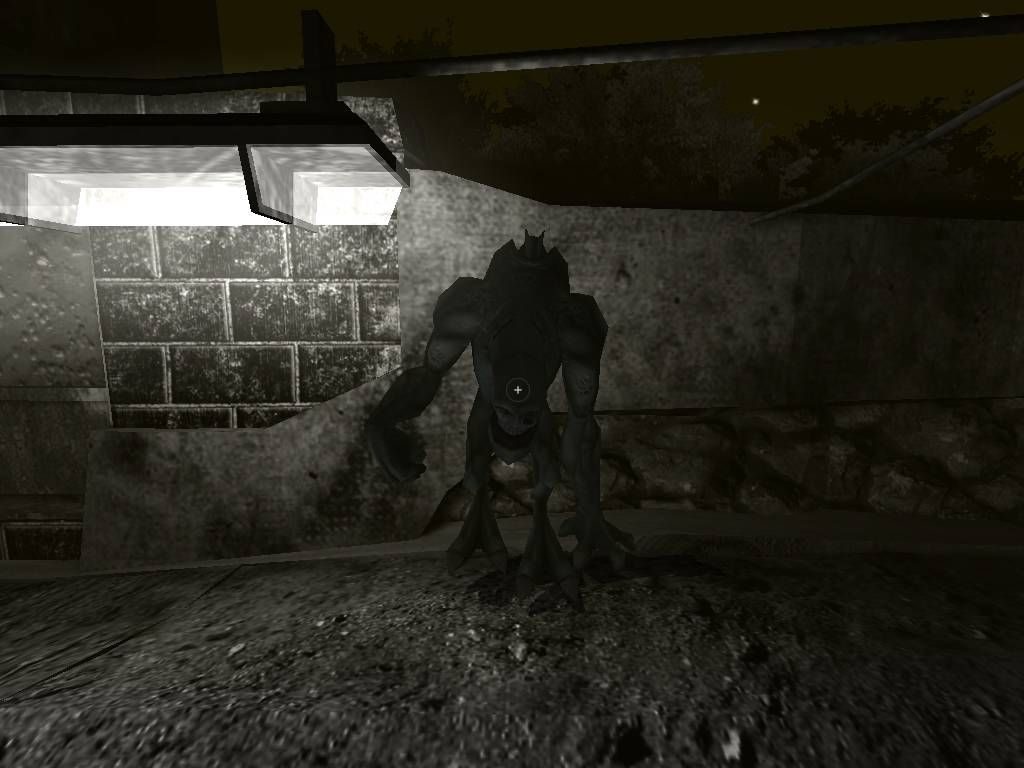Nirvana is a cancelled open world RPG that was in development for PC by Team Nirvana around 2004. At the time it was a fascinating project inspired by beloved CRPGs such as Fallout, but it was probably too ambitious for such a small team, composed of young developers from Germany. Today Nirvana is forgotten by most people, but we can still find details about the team’s ambitious on their old website (translated from German):
In Nirvana, our earth is almost completely destroyed after the third world war. Nuclear bombs changed the world surface, orbital neutron weapons depopulated most cities. In this radioactive contaminated wasteland, various mutations developed. An artificial intelligence created from military research now controls parts of America and Europe. Descendants of the few survivors became nomad tribes, violent gangs, extremist religious communities, anarchists and merchant clans.
Player will have to survive in this bizarre ruined world. Their decisions will change the course of the game. Nirvana will be played in first-person view, thus Doom and Unreal fans can play it like a role-play shooter. If you do not like shooters and RPGs, you may prefer to play Nirvana as Tower-Defence City Simulation game. You can build your own post-nuclear settlement and protect it from enemies. Or maybe you want to play as a rich merchant? Players will be able to join existing clans in the game’s world or start their own gang.
Nirvana is a sandbox, non-linear open world game based on the observation of players and their ever-growing expectations with computer RPGs. In a game we seek freedom to do things we can’t do in our dull everyday life. There is no shortage of such games: they are a competition in which players increase their self-esteem, which is often withdrawn outside of the game world. Nirvana relies on a genre-spanning story and multiple styles of play.
Since expectations for a game vary greatly from player to player, one could think it would not be possible to develop a game that could be loved by every kind of gamers. With linear gameplay, this is hardly feasible. Another problem of traditional games is limited number and type of possible ways to solve a specific task. In Nirvana at least 3 different ways to resolve a task will be available, as well as complete freedom to bypass the task if you don’t want to do it.
For example, a NPC asks you to get an item from a well-guarded building:
- Player 1: (shooter player) they solve the task by using weapons and combat skills.
- Player 2: (the strategist) they plan a different route to steal the item without being seen by enemies
- Player 3: (the sim player) they persuade a NPC to take over the job for them or talk with enemy guards to bribe them.
- Player 4: (the RPG player) they find the solution that best suits their character class chosen at the beginning of the game
- Player 5: (the spontaneous guy) they may ignore this request to instead explore the rest of the game world, and maybe solve the quest later or not at all
- Player 6: (the shortsighted guy) they just kill the client, take their money and then also infiltrate the building to keep the item.
The make-a-character and choose-your-class options will remind you of a role-playing game, while weapon and armor settings will be reminiscent of a classic shooter. For the dealer class you can unlock unique gameplay mechanics that will allow to turn the game into an economic and trading simulation. You can take your own apartment, where to keep all of your belongings weapons, items, similar to the fan-made “Morrowind” apartment mod. In cities you could enter and explore at least 50% of all the buildings, doors will not be locked or just part of the wall texture, something that often frustrate players in open world games such as GTA and Mafia. You can talk with each non-playable character and with some of them you can trade on the street without ever having to enter a shop.
Another source of information for the Nirvana project is an old interview posted in 2004 on Gamers With Jobs:
Q: How many people are actually working on the project?
Carsten Kny: The team currently consists of four permanent members and two external people providing additional support.
Q: Have you developed games or mods before?
CK: Nirvana is the first project of this particular team, but all of us were involved in the production of games in some way before that.
Q: What kind of locations will the player be able to visit?
CK: Abandoned places such as cities that were hit by neutron bombs, radioactive wastelands, urban locations that are under the command by different gangs and deserts. Rural regions like farm lands were mostly spared the huge disasters. We’ll also have junkyards, ice deserts, mines, lost labs, bunkers, sewer systems populated by mutants. A forbidden zone – territory of the AI creatures, more or less peaceful trading routes. Nomad camps and destroyed industrial areas. And many interior locations like bars, warehouses or old subway tunnels.
Q: And in which part of the world is the game set to take place?
CK: We’ve already watched North America being destroyed in quite a number of movies, so we decided to go for Europe.
Q: Based on the initial information Nirvana appears to be a mix of FPS and action-RPG. How would you describe it and which of the games currently available or in development would you compare it to?
CK: There’s quite a number of things that inspired us. Picture a mix of Fallout and Morrowind. Of course, the battle system will be closer to what you know from FPS titles.
However, we’re also looking at things we liked in other games. The stealth-o-meter in Splinter Cell would be an example of that. It basically scans the texture shading in the nearby environment and displays it on a panel. The shadow panel is a brilliant idea – yet it doesn’t require an enormous amount of coding effort.
Often enough parts related to the gameplay devour less time than those related to the development of the plot line. We always have an eye open for stimuli like this and are curious about what Stalker and Restricted Area may offer .
Q: How are the different characters classes going to affect the gameplay?
CK:Well, there are no mages in the game, but if you’re looking for something similar you might want to be an explorer. A former mercenary is likely to have a hard time establishing a trading business. The trader again is better off avoiding fights – at least earlier in the game – in order to survive. Finding friends among those who have power will not be that easy if you happen to be an anarchist. Finding friends among rebels probably will.
There’s no static, traditional “good/evil” concept in the game. Each group has proper reasons for why they’re behaving the way they do. The choice of your character partially determines which factions you’re friends with or not. And you may change that throughout the game.
Q: It’s also been said that the player will be able to found new settlements which then could be managed by him/her. Could you elaborate on that idea?
CK: Well, Nirvana is a first-person game, so the strategical/economic part doesn’t work the way it’s traditionally being realized.
One will be able to start your own gang once you gained enough reputation among the NPCs. Enough reputation to convince at least five other persons. (Altogether your gang can have up to 15 members.) Upon having found people willing to join your side you’ll have to look for a nice spot to found a settlement. The required building land has to be purchased from one of the big clans. You’ll recognize these locations through signs stating that they’re up for sale. You should take your goals into account before buying land. Once you’ve acquired a building site, the sign will bear the logo of your gang.
If there’s enough money left then you can assign other NPCs to construct a main building. It’s the only one that has multiple purposes. It offers enough space for your character and the following five NPCs: The administrator is the person you have to talk to about constructing new buildings. He’ll also send messages informing you about important incidents when you’re not ‘at home’. The hunter can get enough food and water to support up to 10 people. The medic is in charge of the ward. And, of course, will heal the player for free. If something’s broken or not working properly it can be repaired by the engineer. The guard will help defend your place against intruders with his heavy machine gun.
The more your wealth increases through shares in mines or farms or money earned by solving quests, the more you can expand.
Other buildings that can be constructed: farm, water cleaning station, stock, storage, trading house, quarters, watchtower, MG station and barbed-wire fences or walls. And maybe a bar or labs – but we’re still debating that.
Some of them aren’t ‘universal’ and cannot be built everywhere. There’s no sense in constructing a trading house when there’s no trading route nearby. And an MG station seems pretty much useless if your settlement is located at a nice, calm and peaceful spot.
Q: And all that put into one game… well, that sounds very ambitious, doesn’t it?
CK: Yeah, I guess most people will think we’re crazy, claiming that a non-linear concept requires a lot more effort than a linear one. That’s certainly true when we’re talking about something like hypertext literature, but I think it’s different when we’re talking about game development. The more content you want to offer, the better a non-linear approach works. Morrowind, for instance, wouldn’t have worked that well as linear game and that certainly also would have resulted in a longer development time.
In an extremely linear game you’d have an individual script or parts thereof for every single NPC. In a non-linear game you only need one script that takes values such as skills and variables into account. To phrase it in a more simple way: an NPC has to find out who he/she is at first. And then he/she determines his/her attitude towards the player. The difference between or similarity between variables plays a role in the generates the behavioural patterns. That way also NPCs – and not only your character – can change while you’re playing the game.
As you can read from their own words, the team dreamed of an overly ambitious open world game that would merge many different genres, something like a mix between Fallout, The Elder Scrolls III: Morrowind, Deus Ex, GTA 3 and many other role-play sims. It’s easy to see why it was not meant to be.
We don’t know what happened to the Nirvana Team after their game was cancelled. As of today, this article on Unseen64 is one of just a couple of pages online that even remember Nirvana, such as an old article on a Poland website.
Images:

